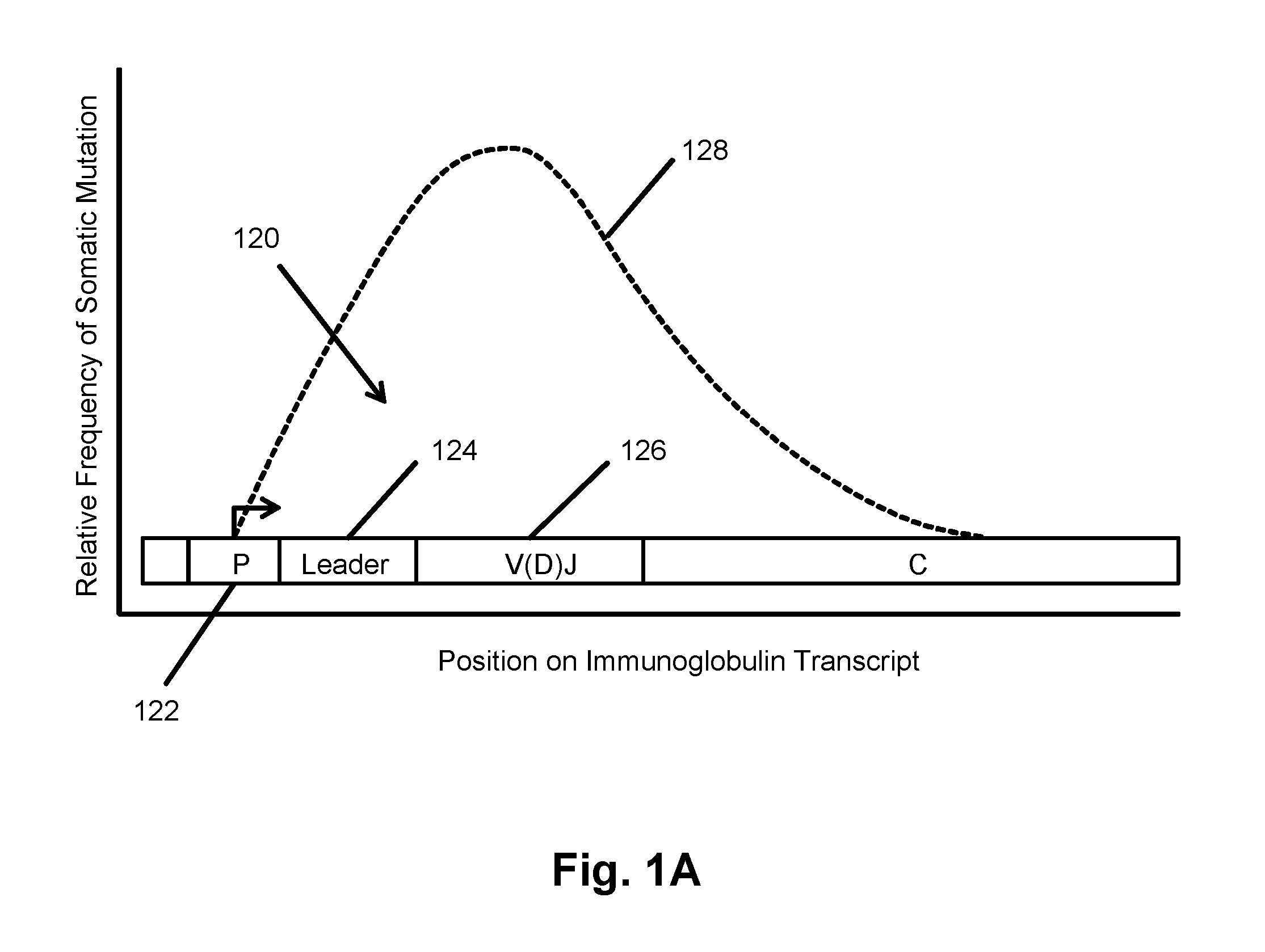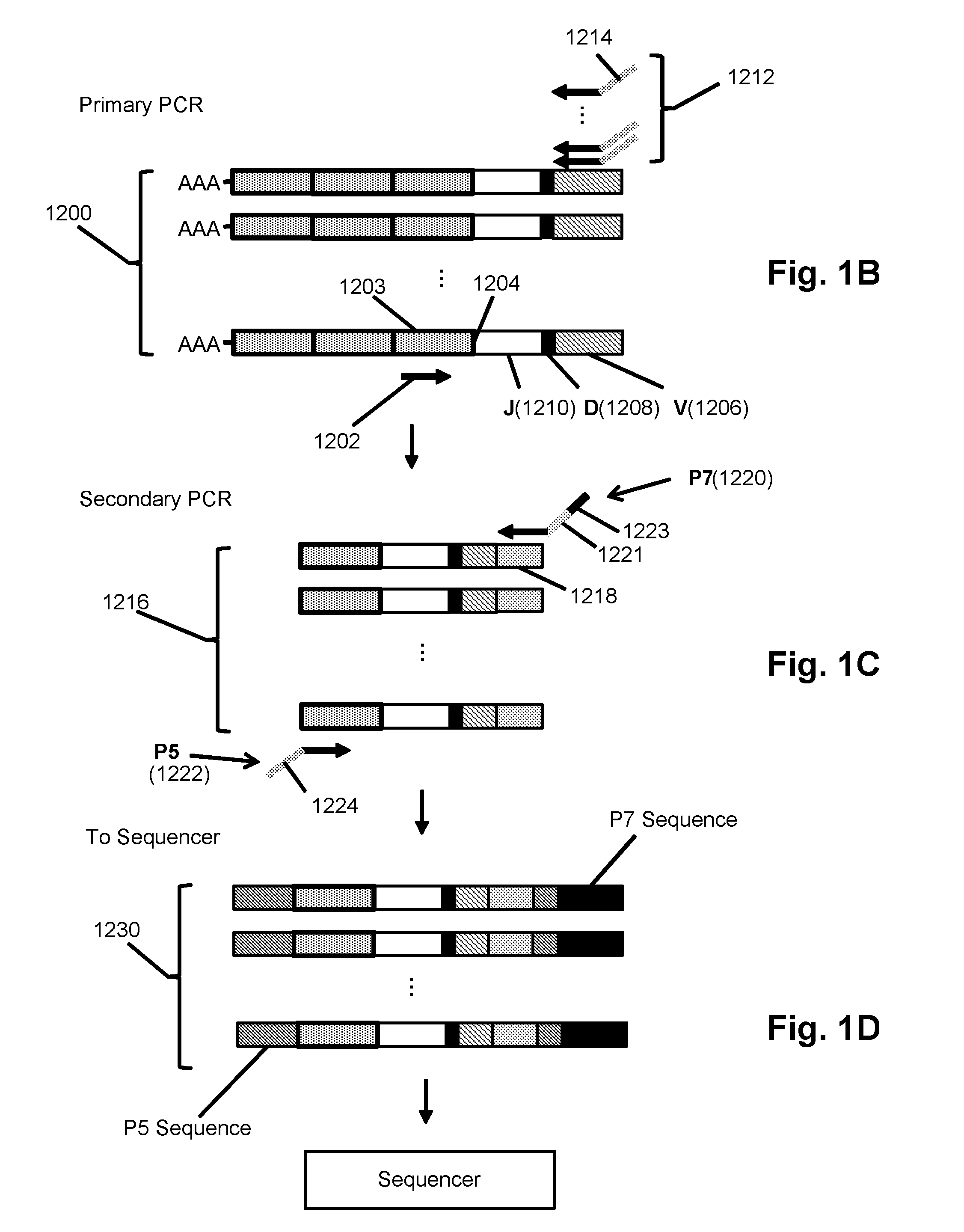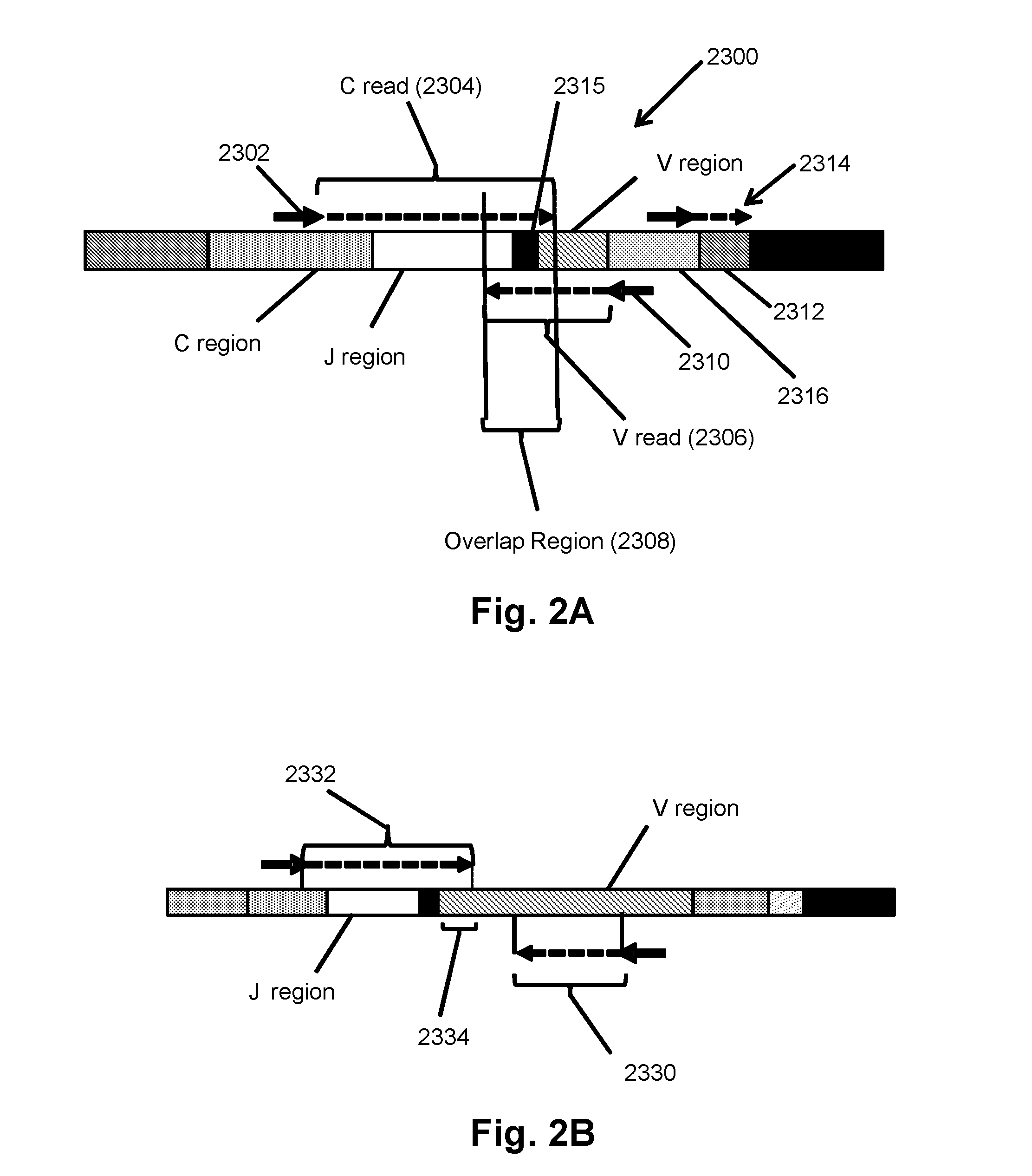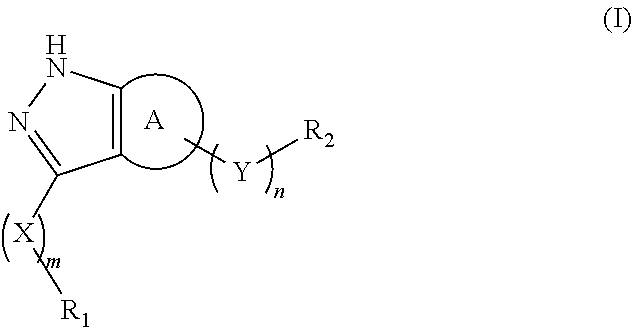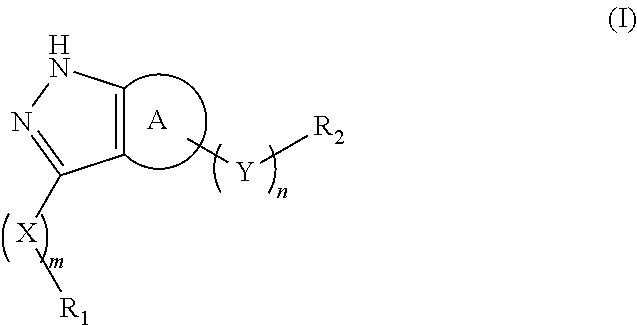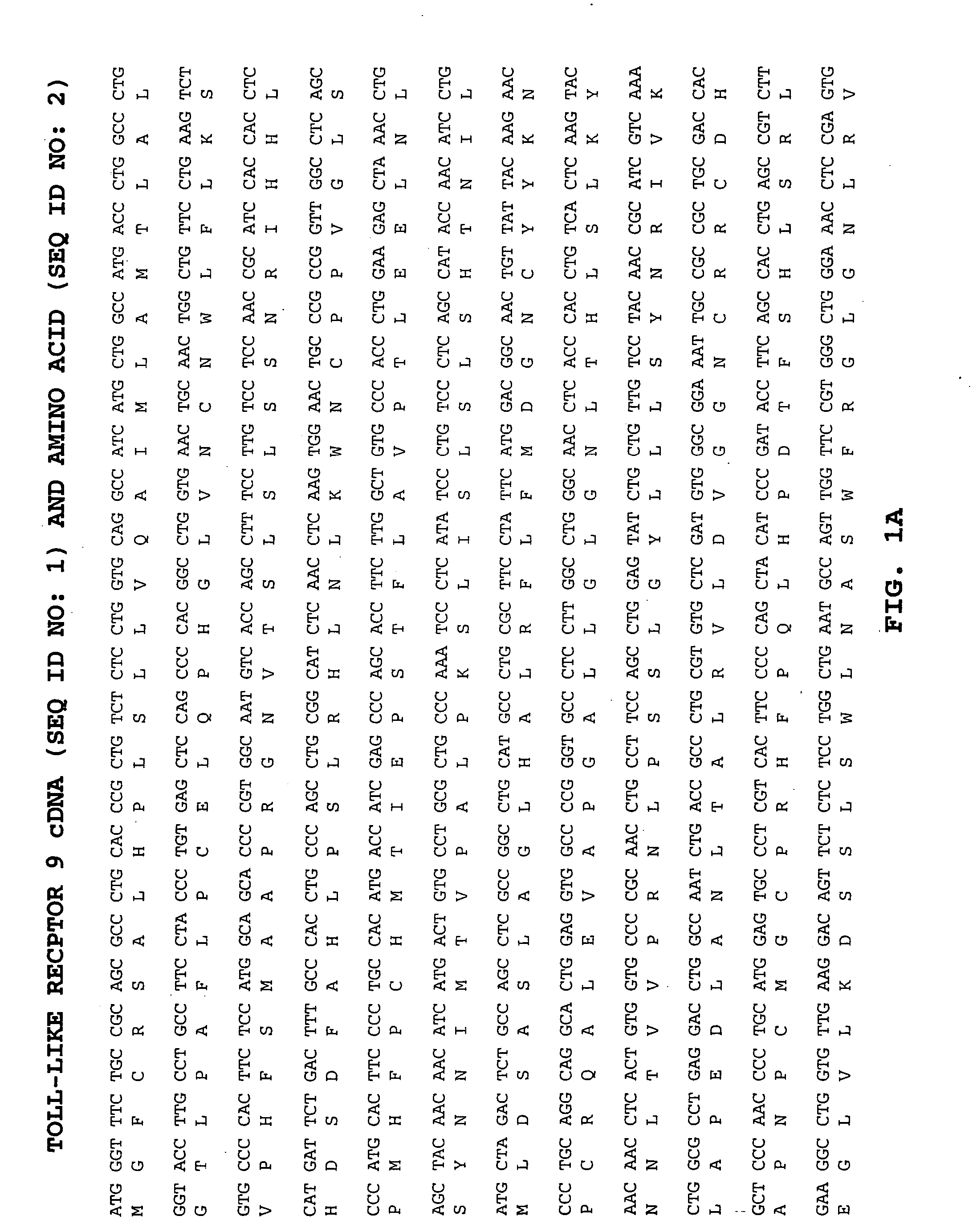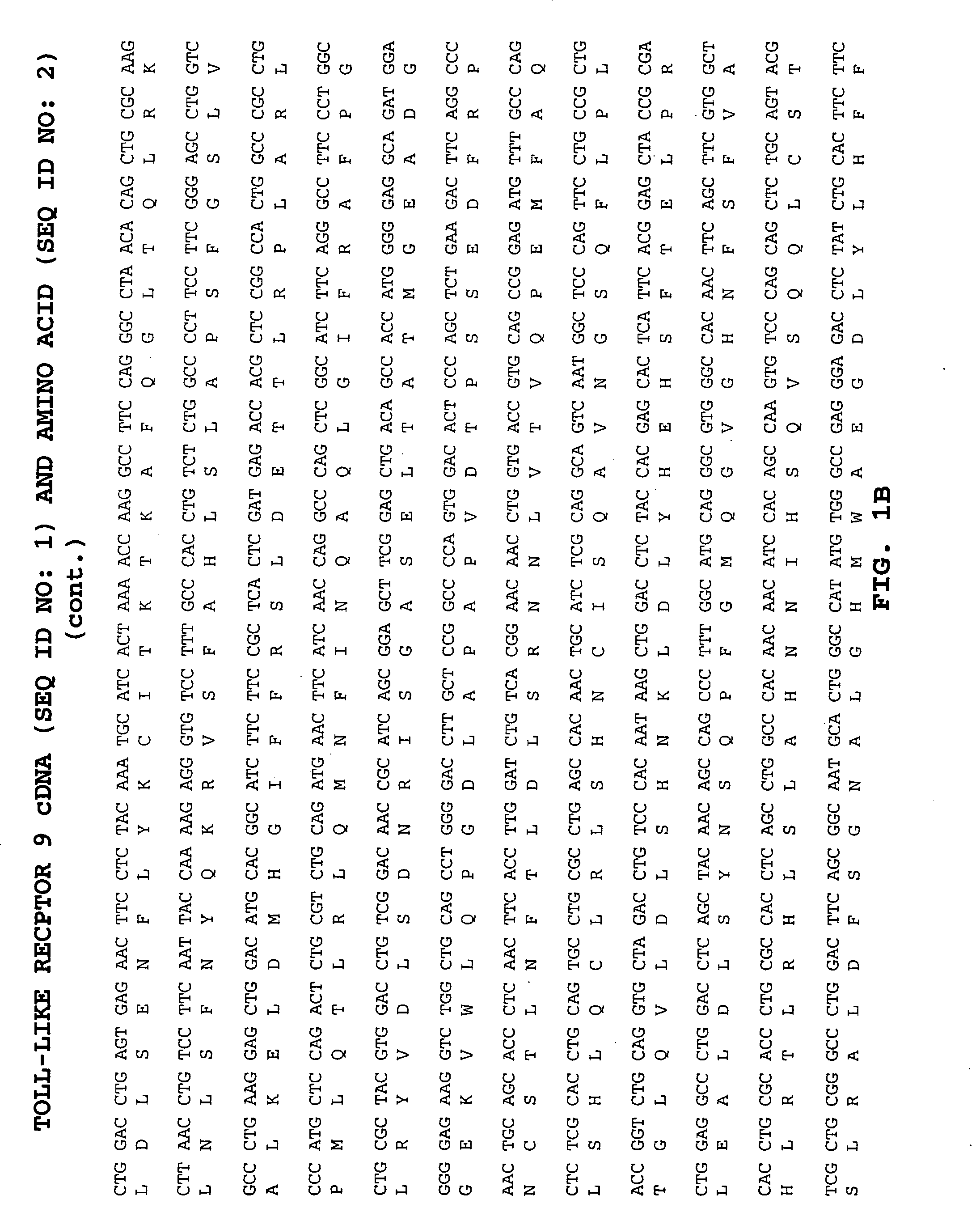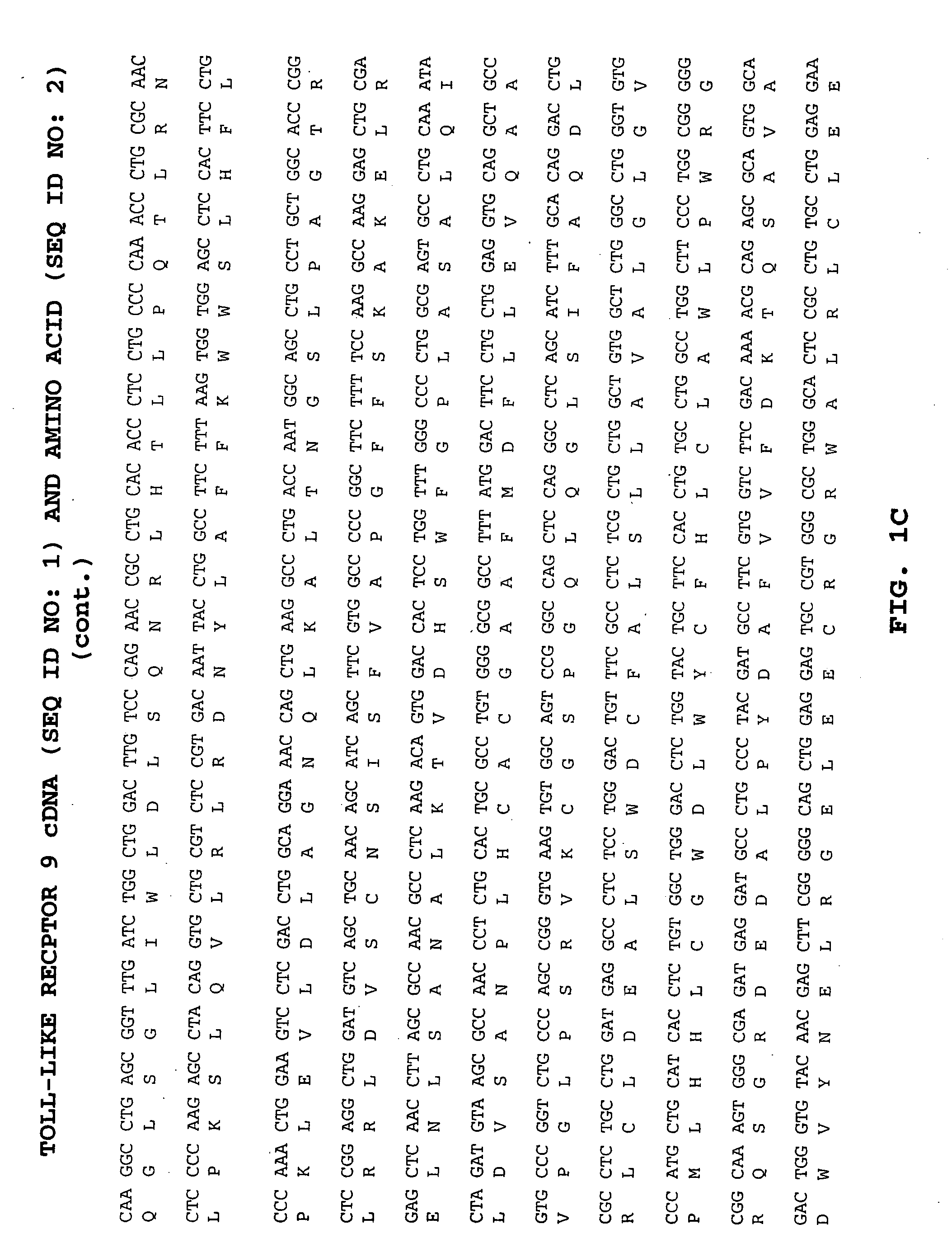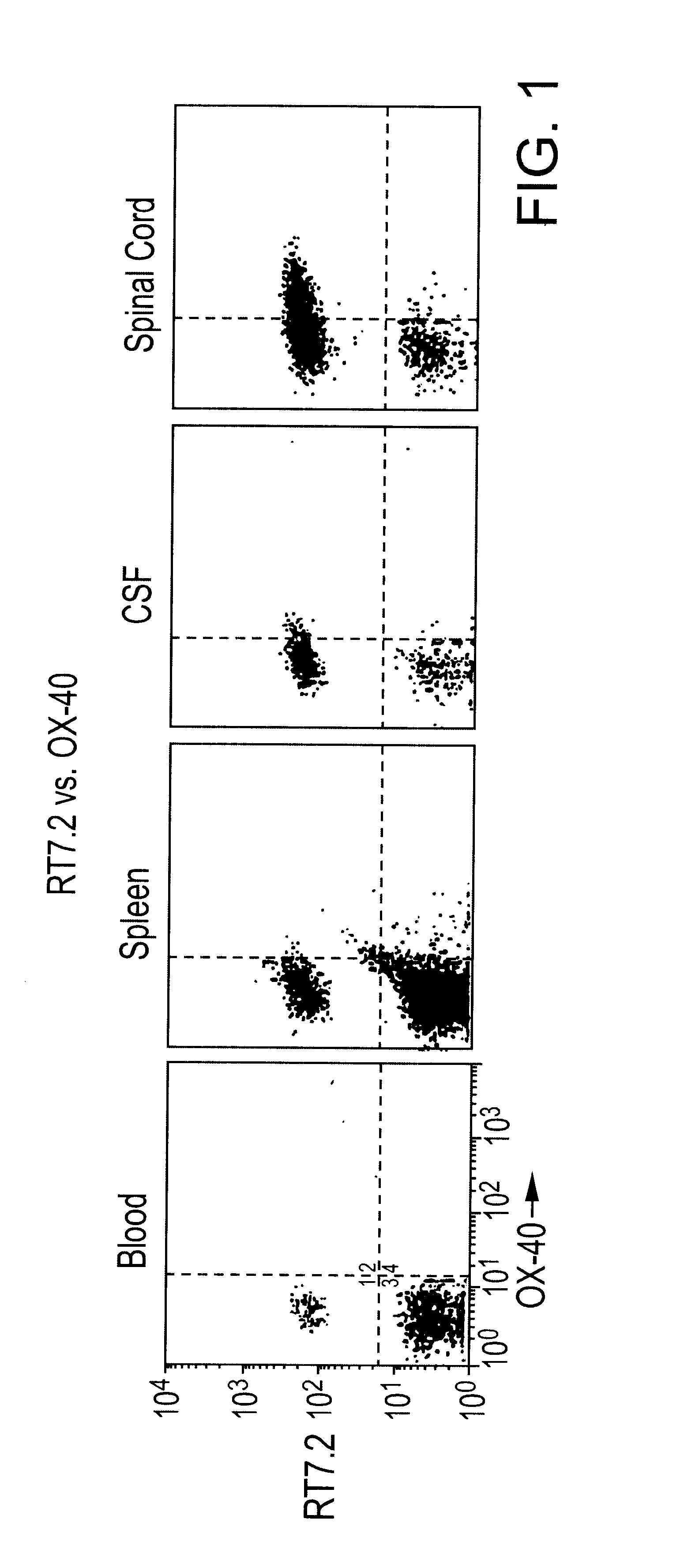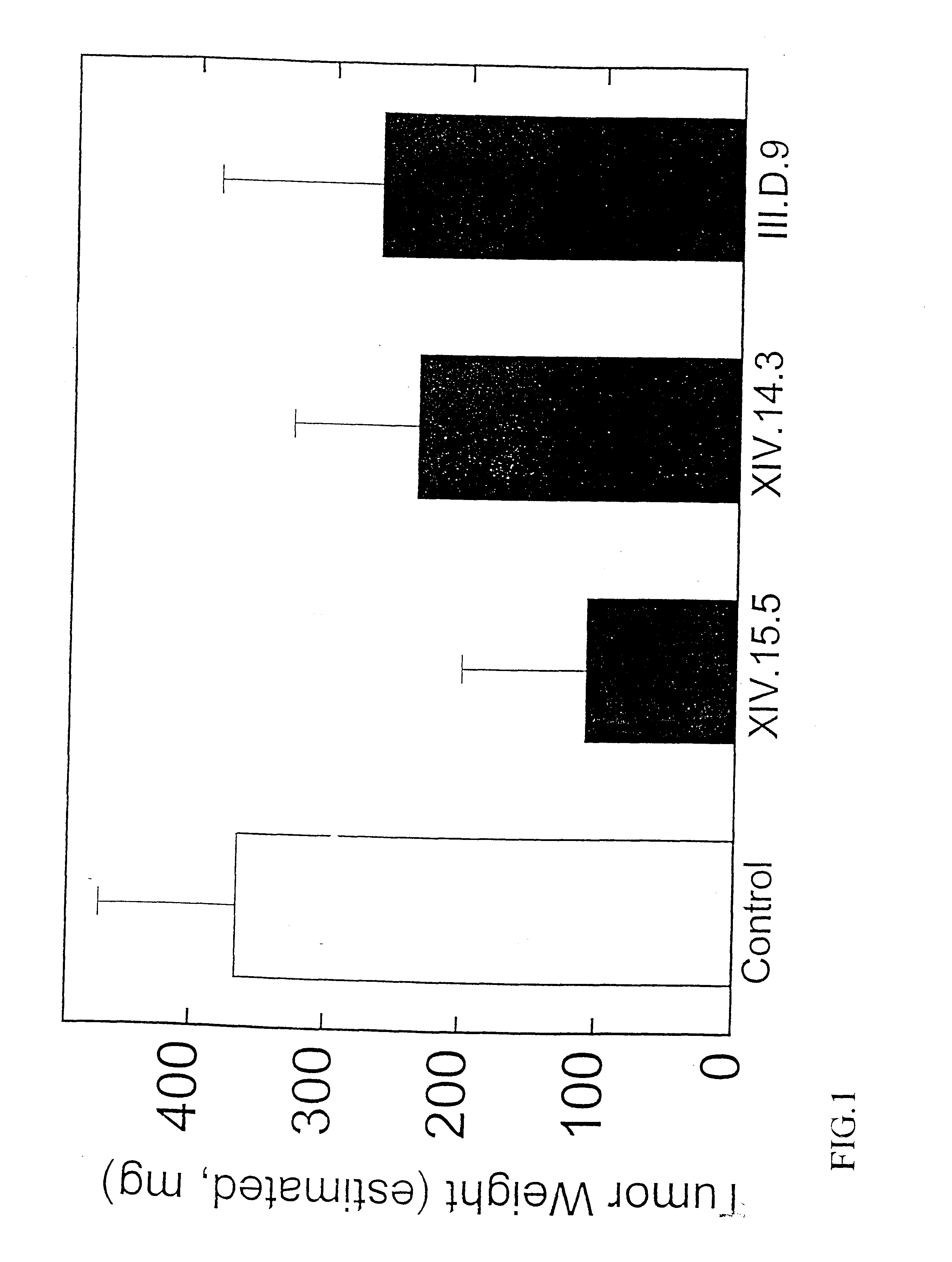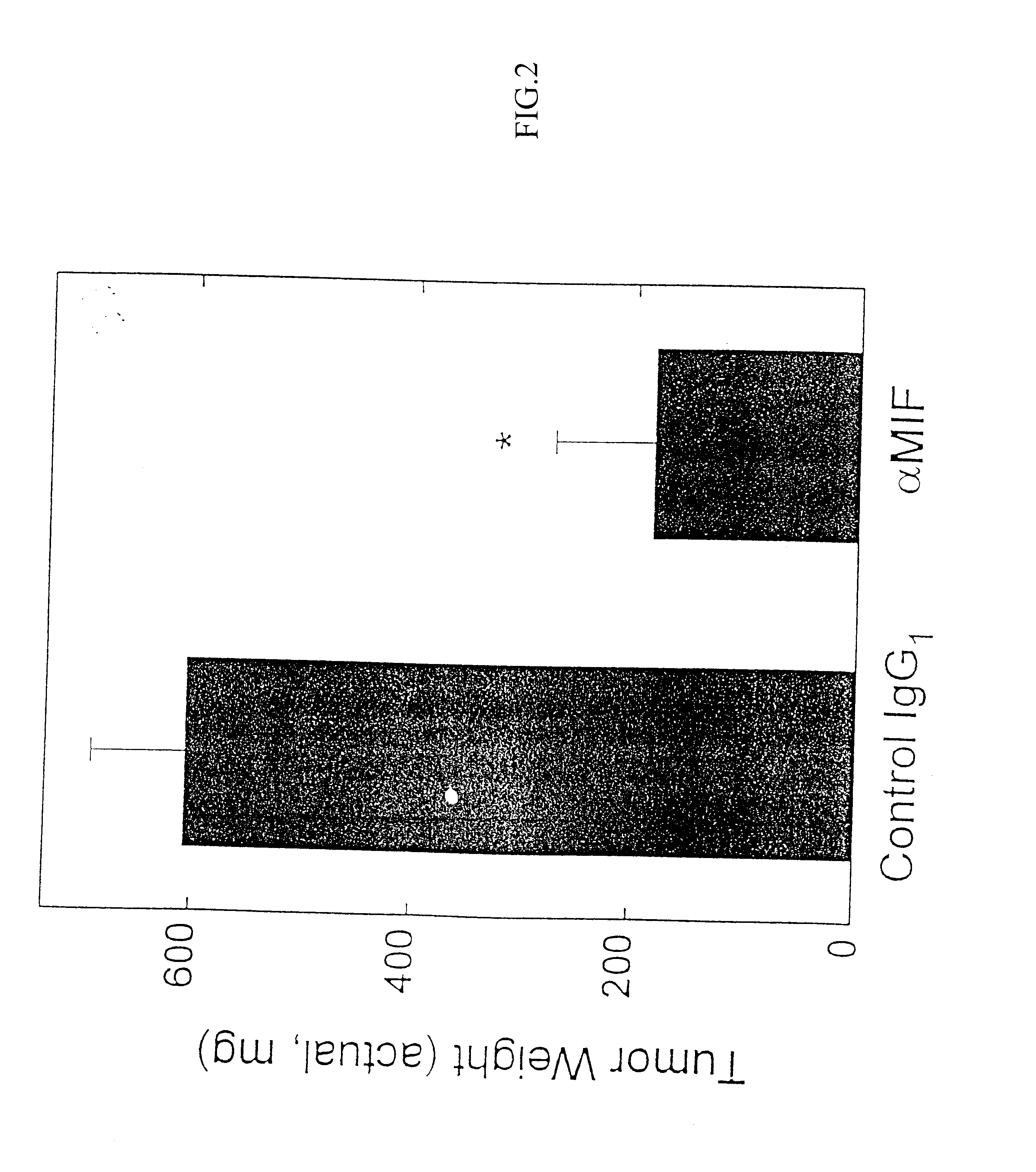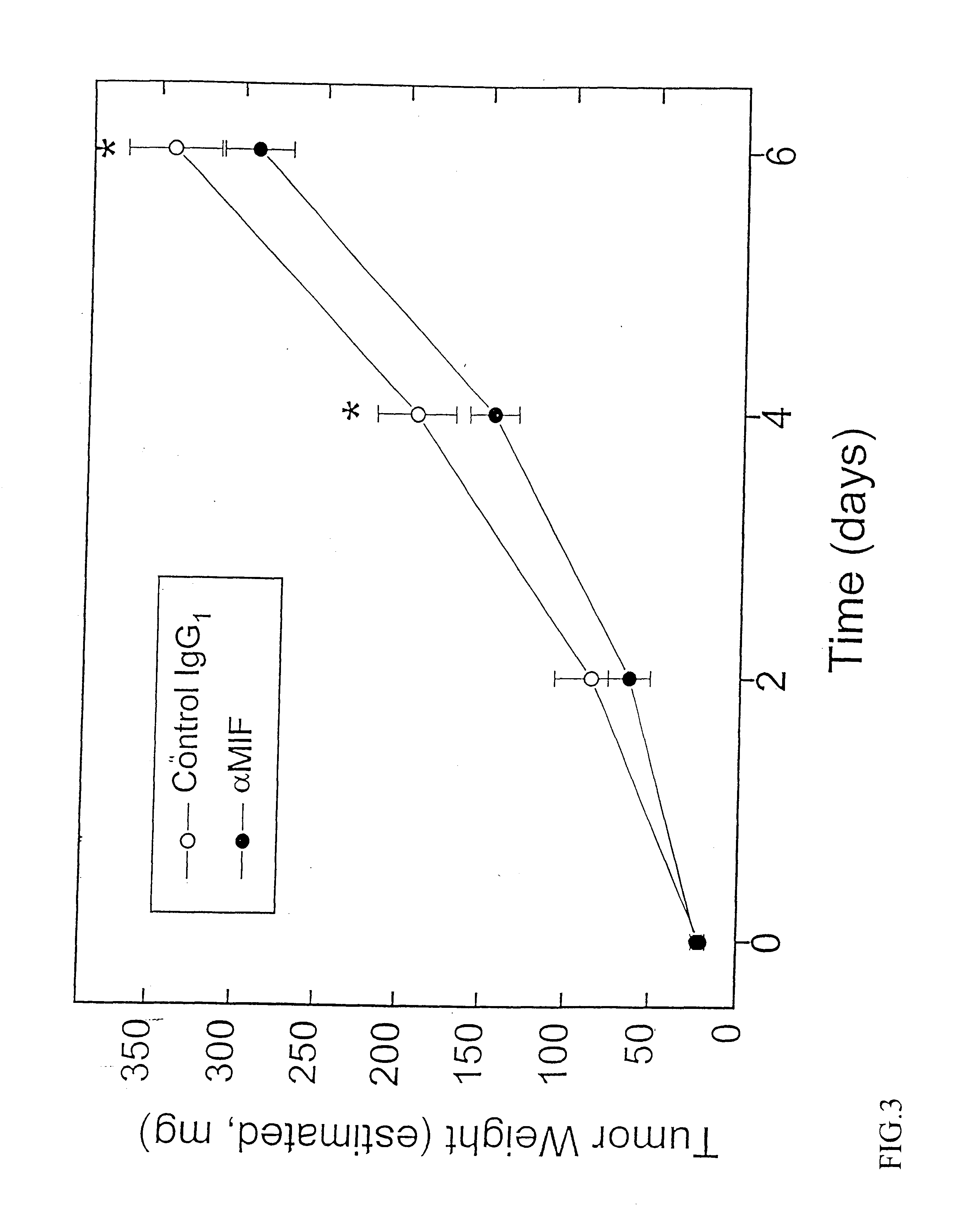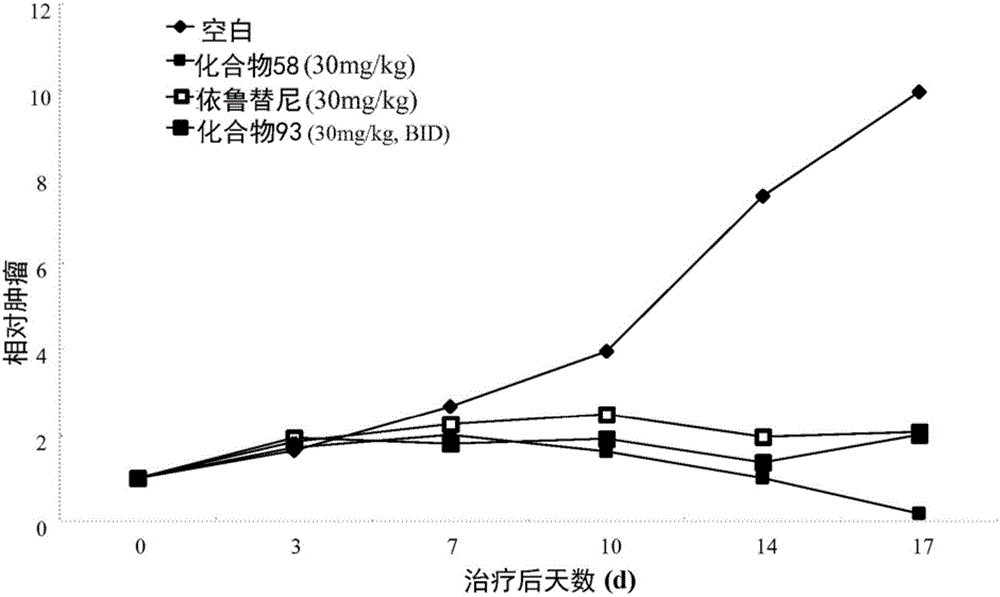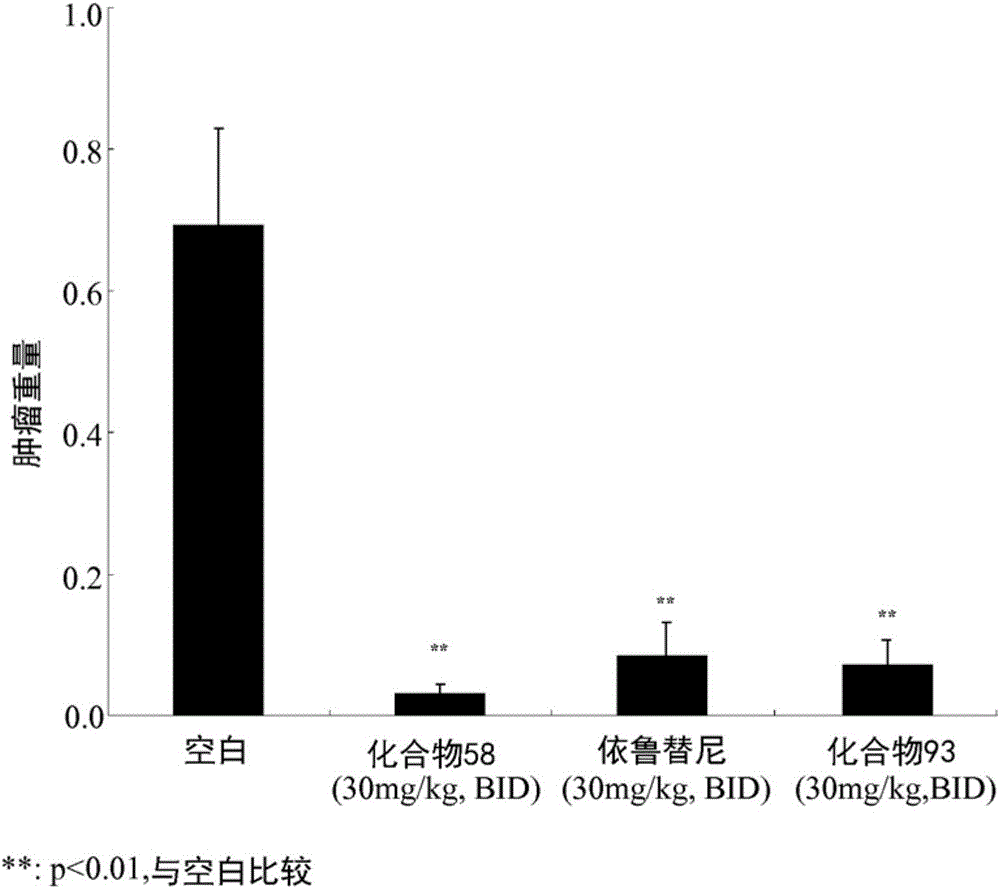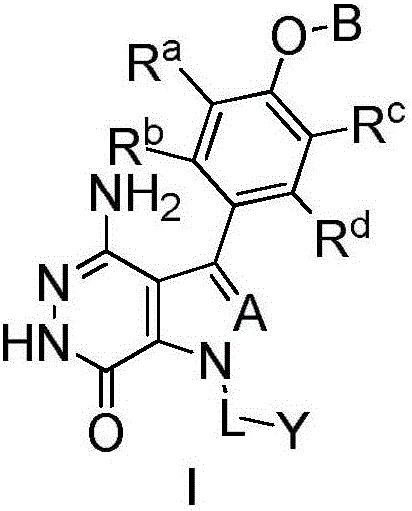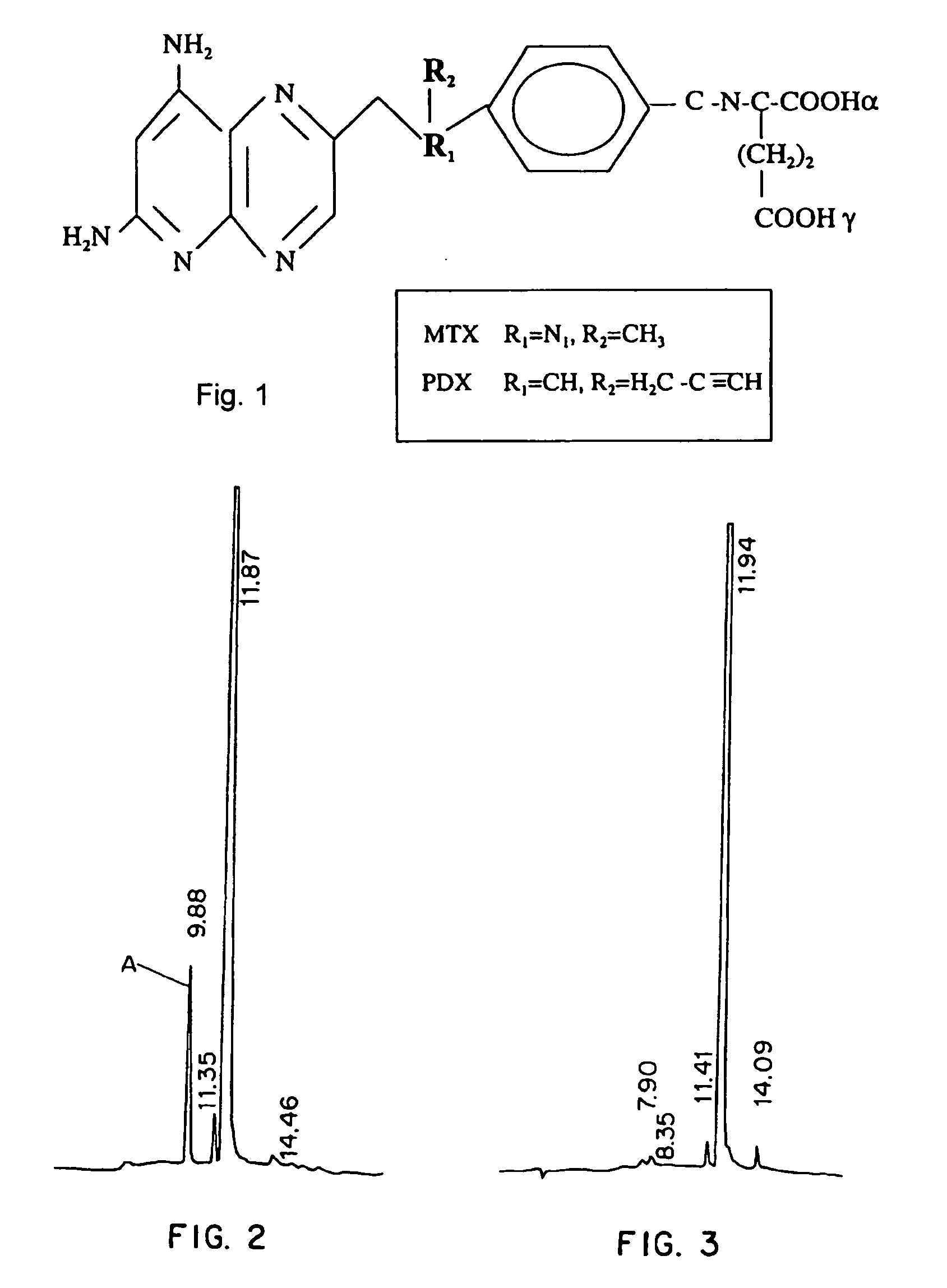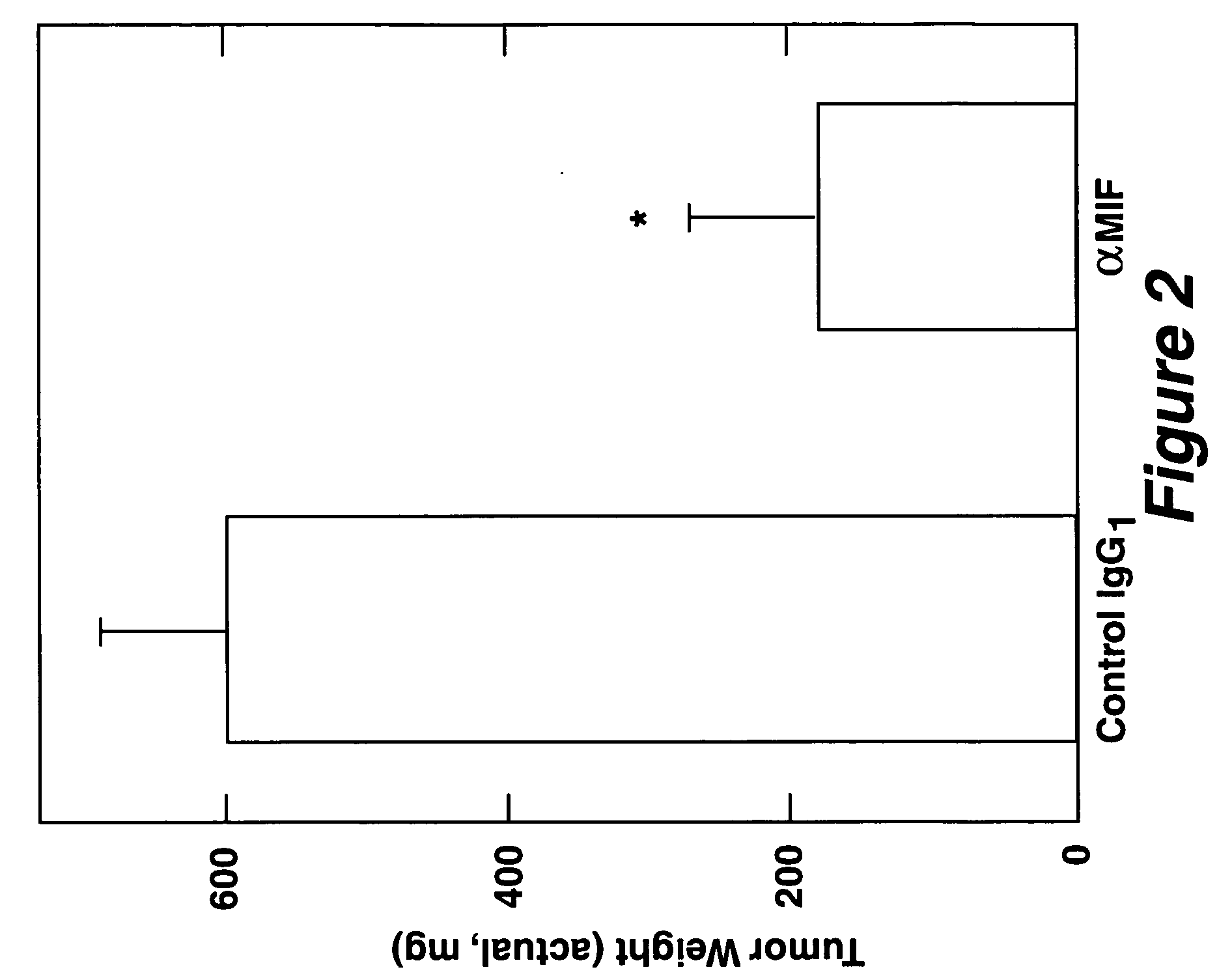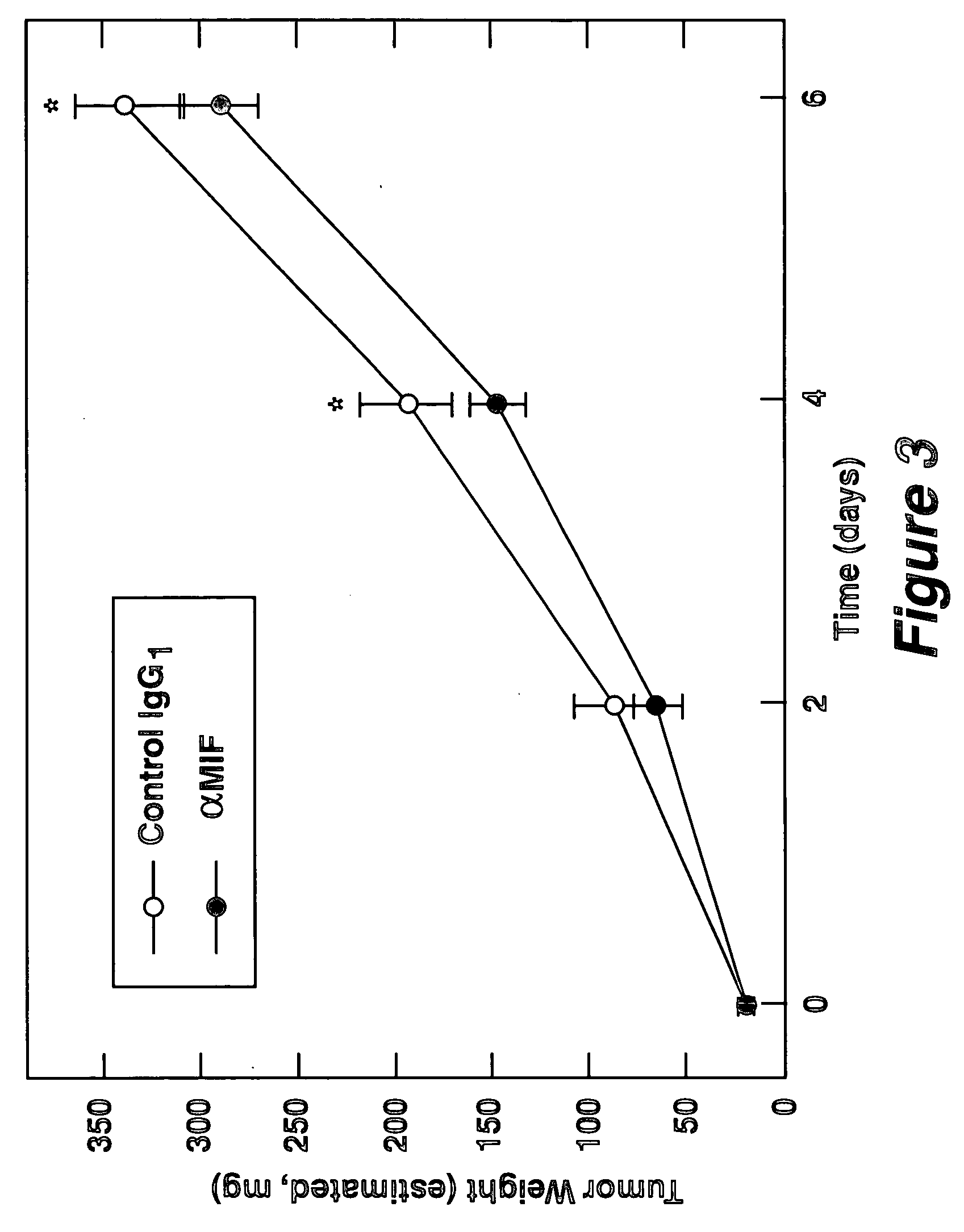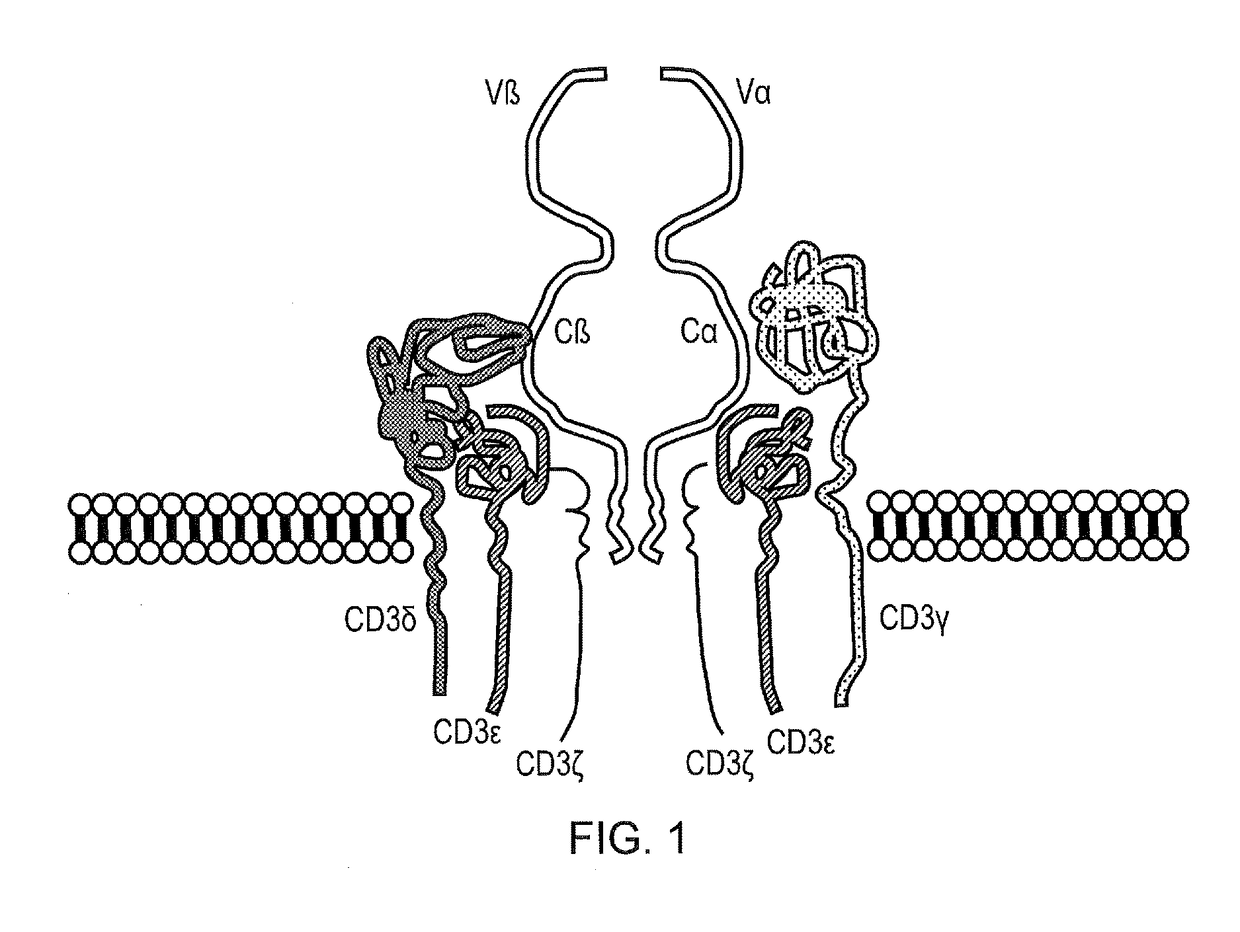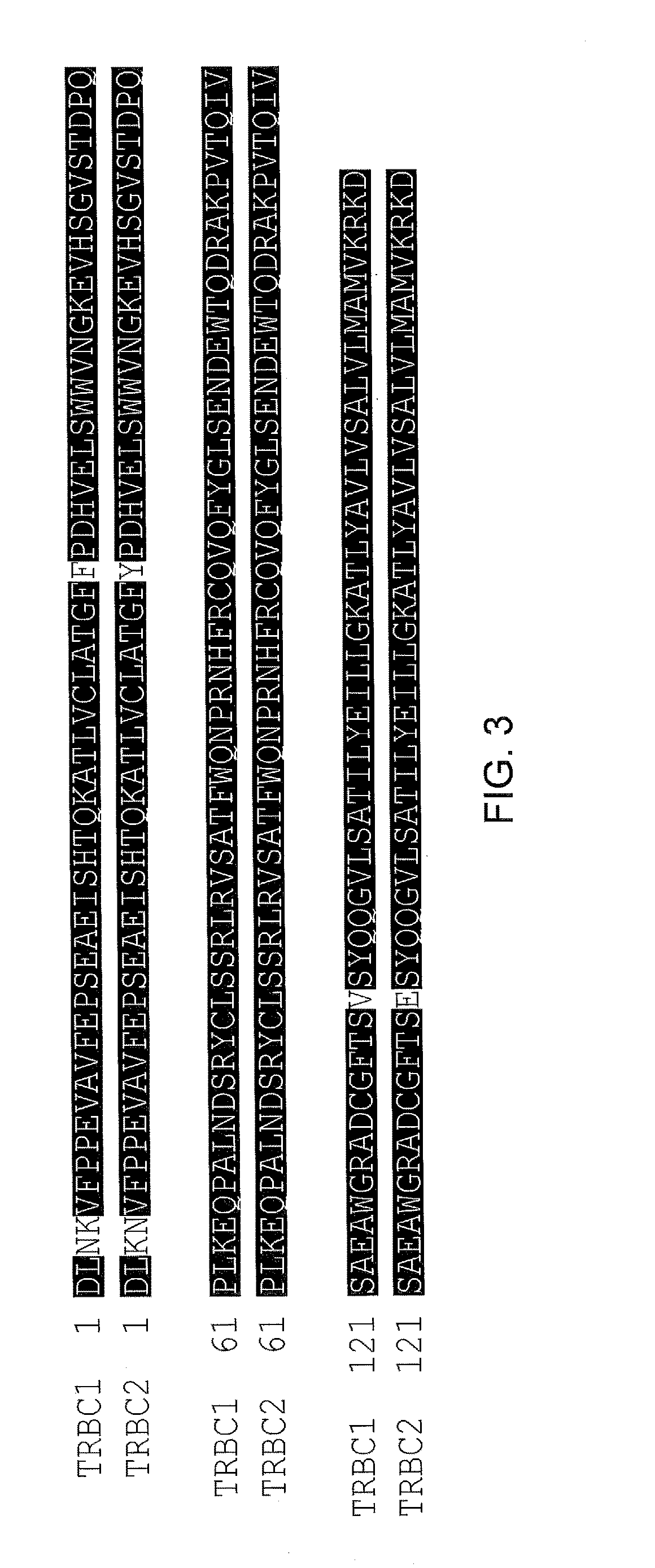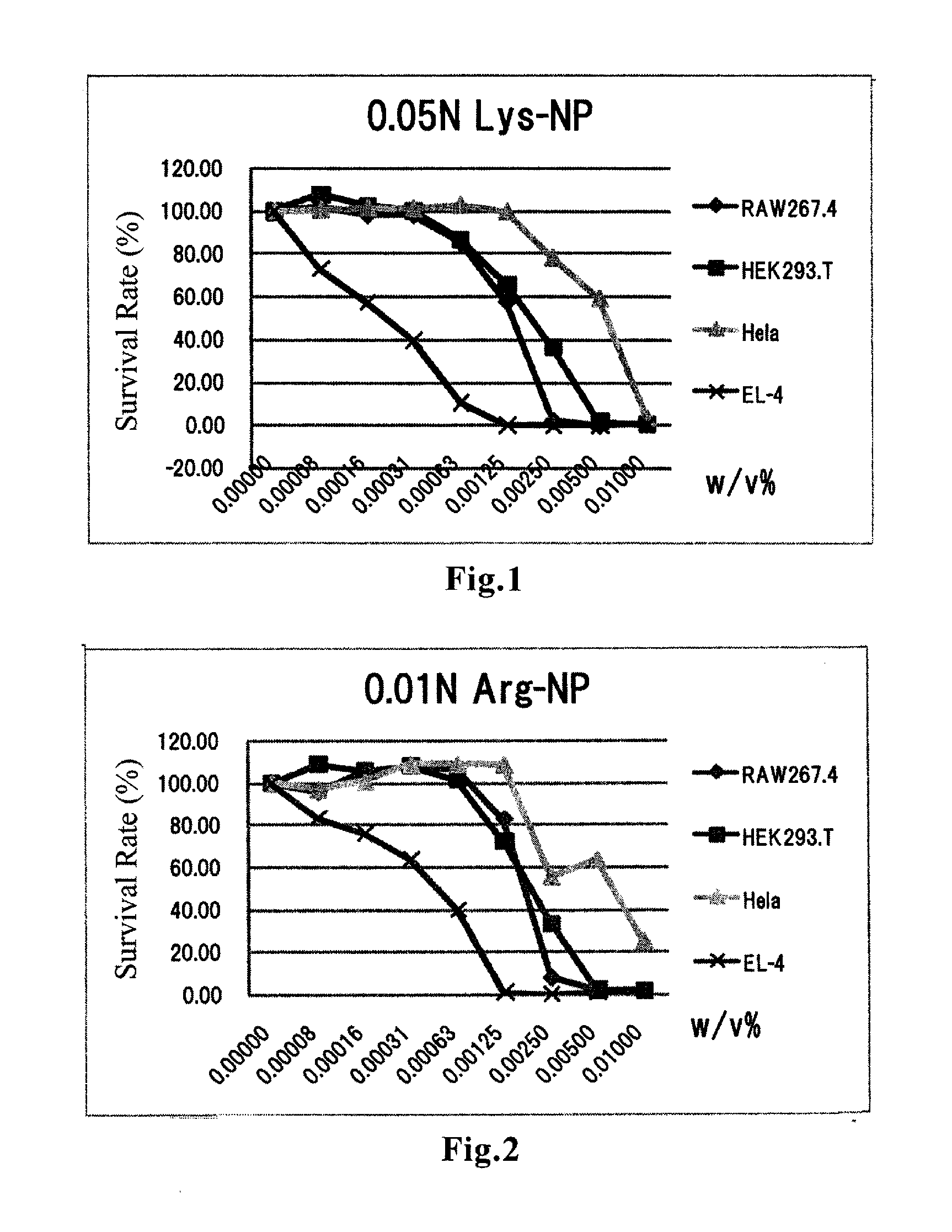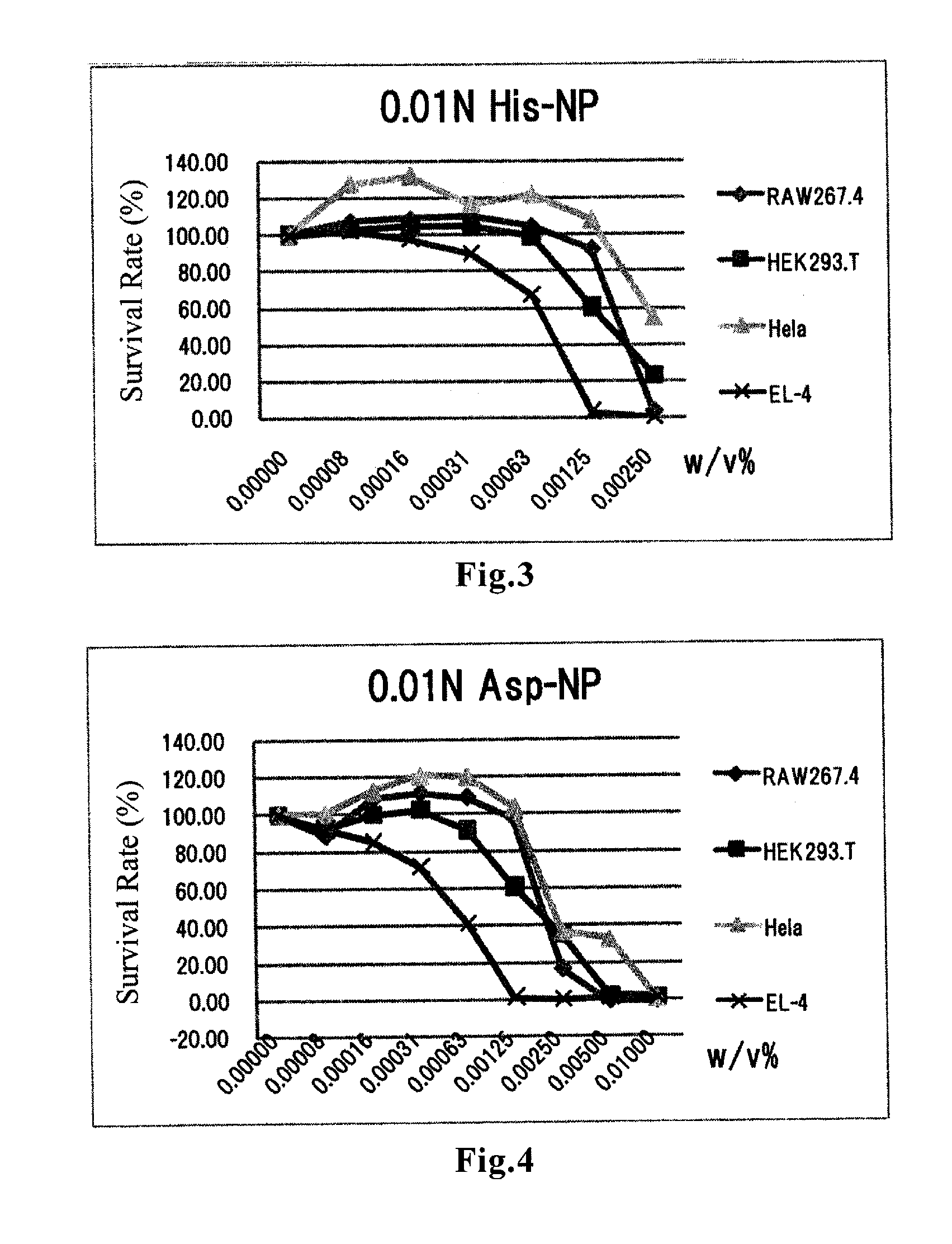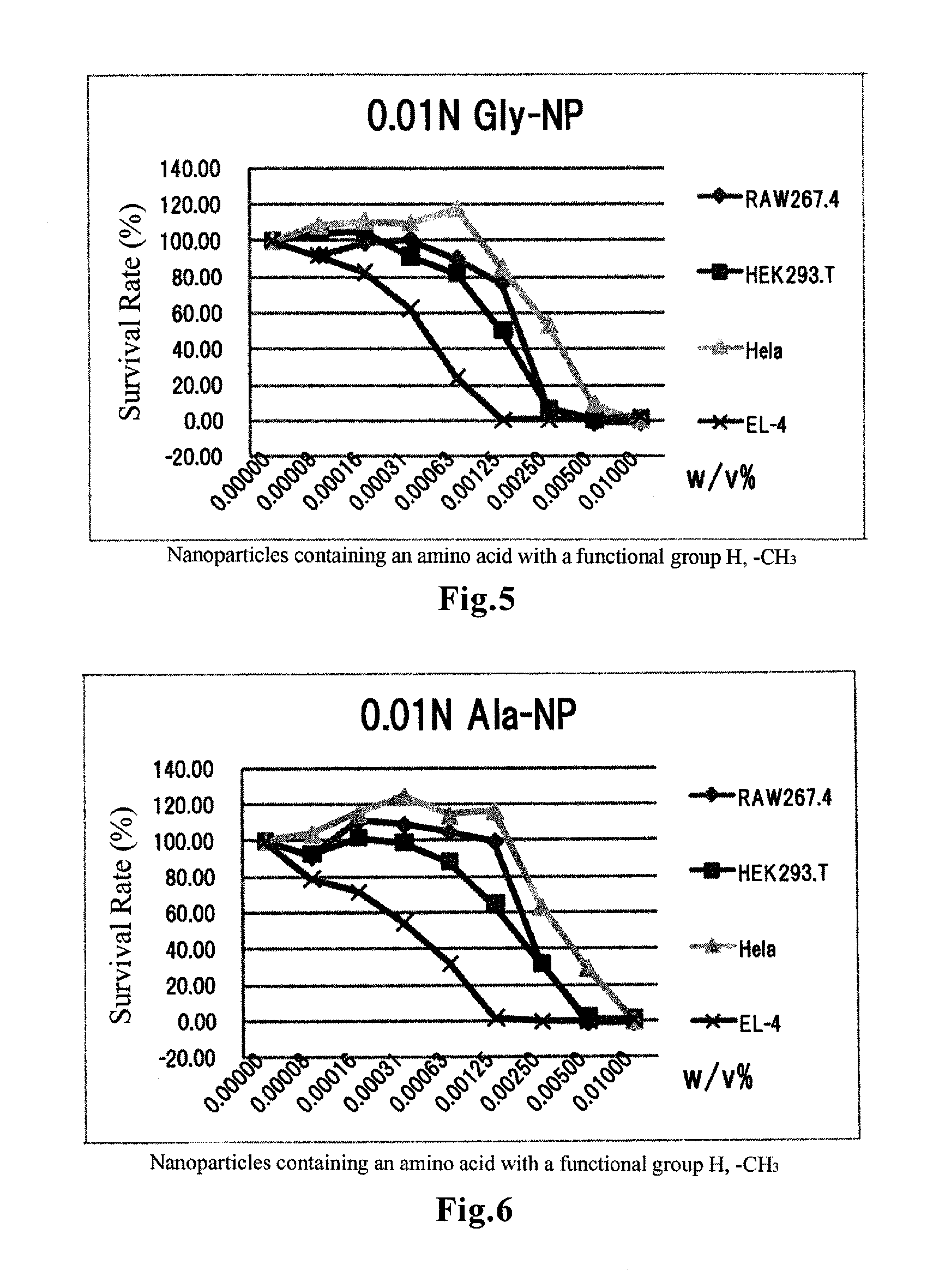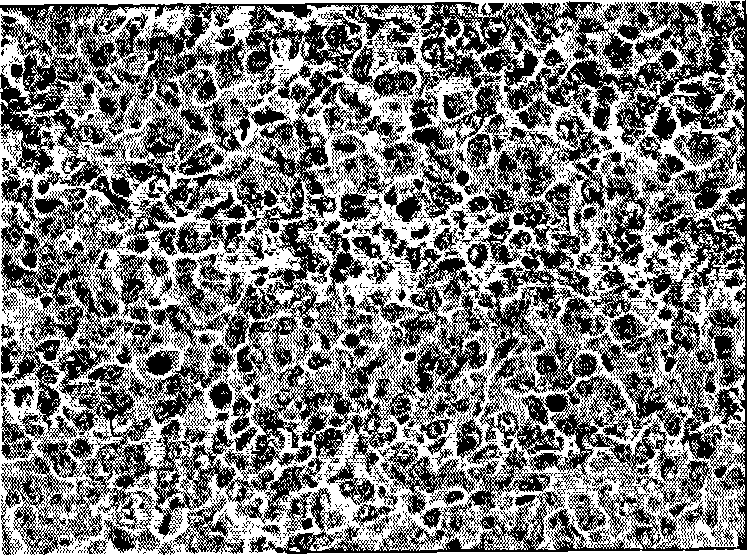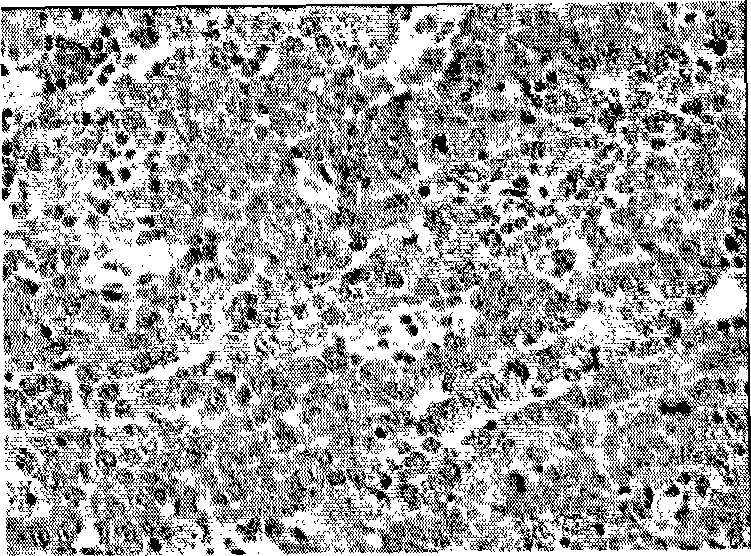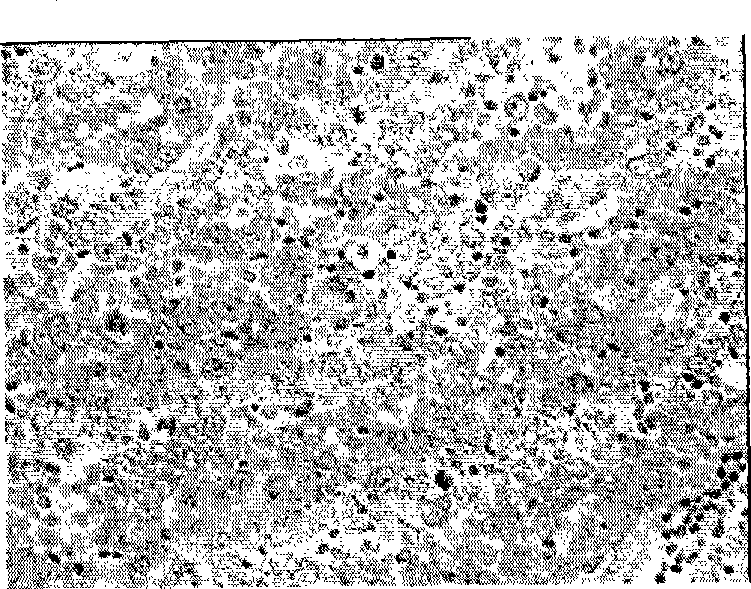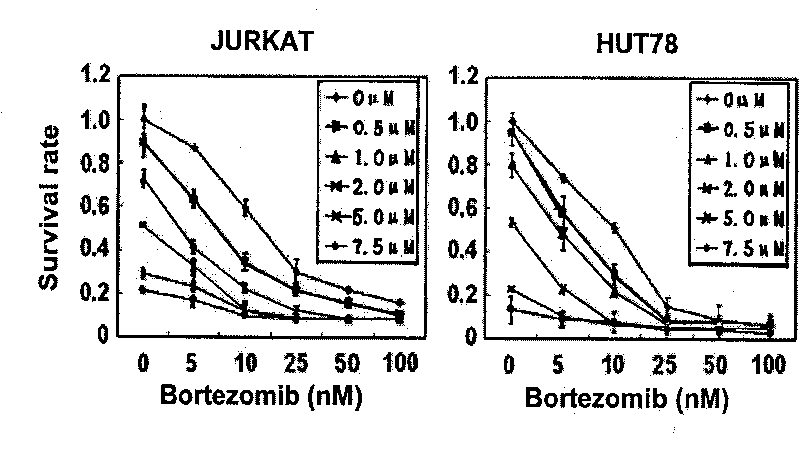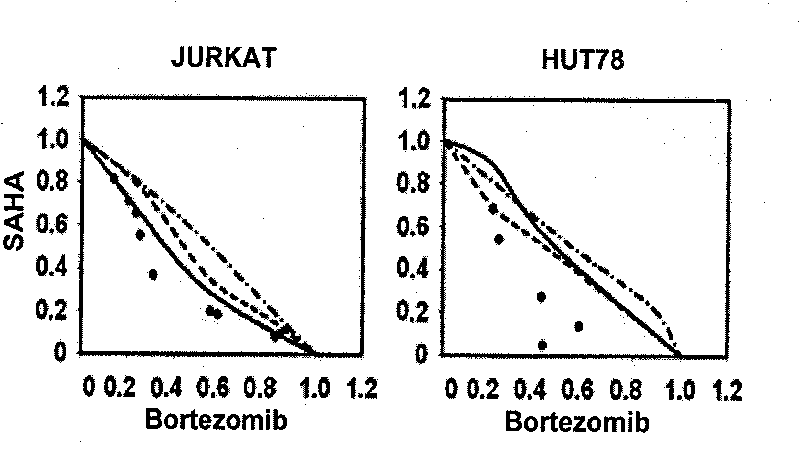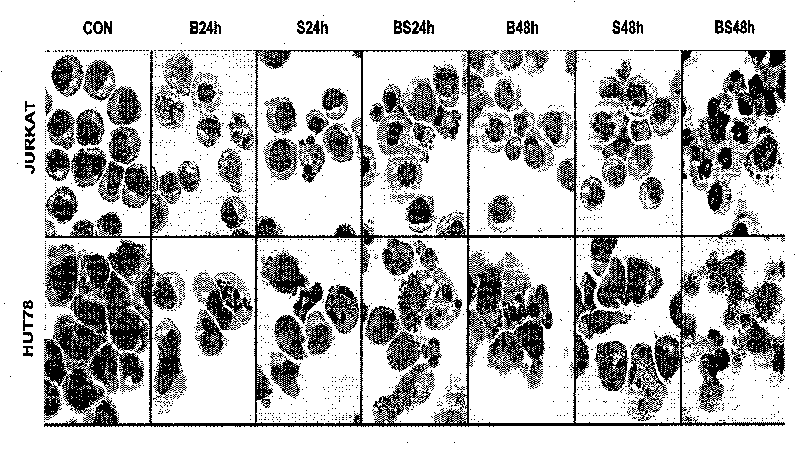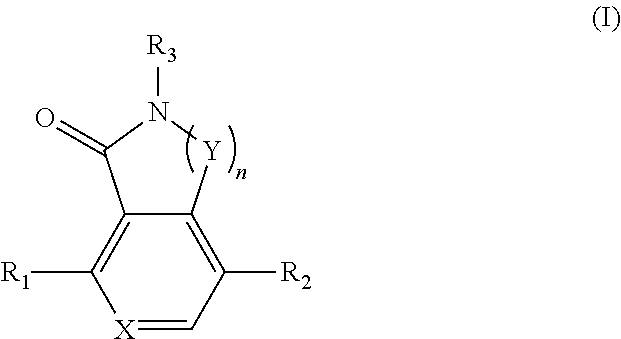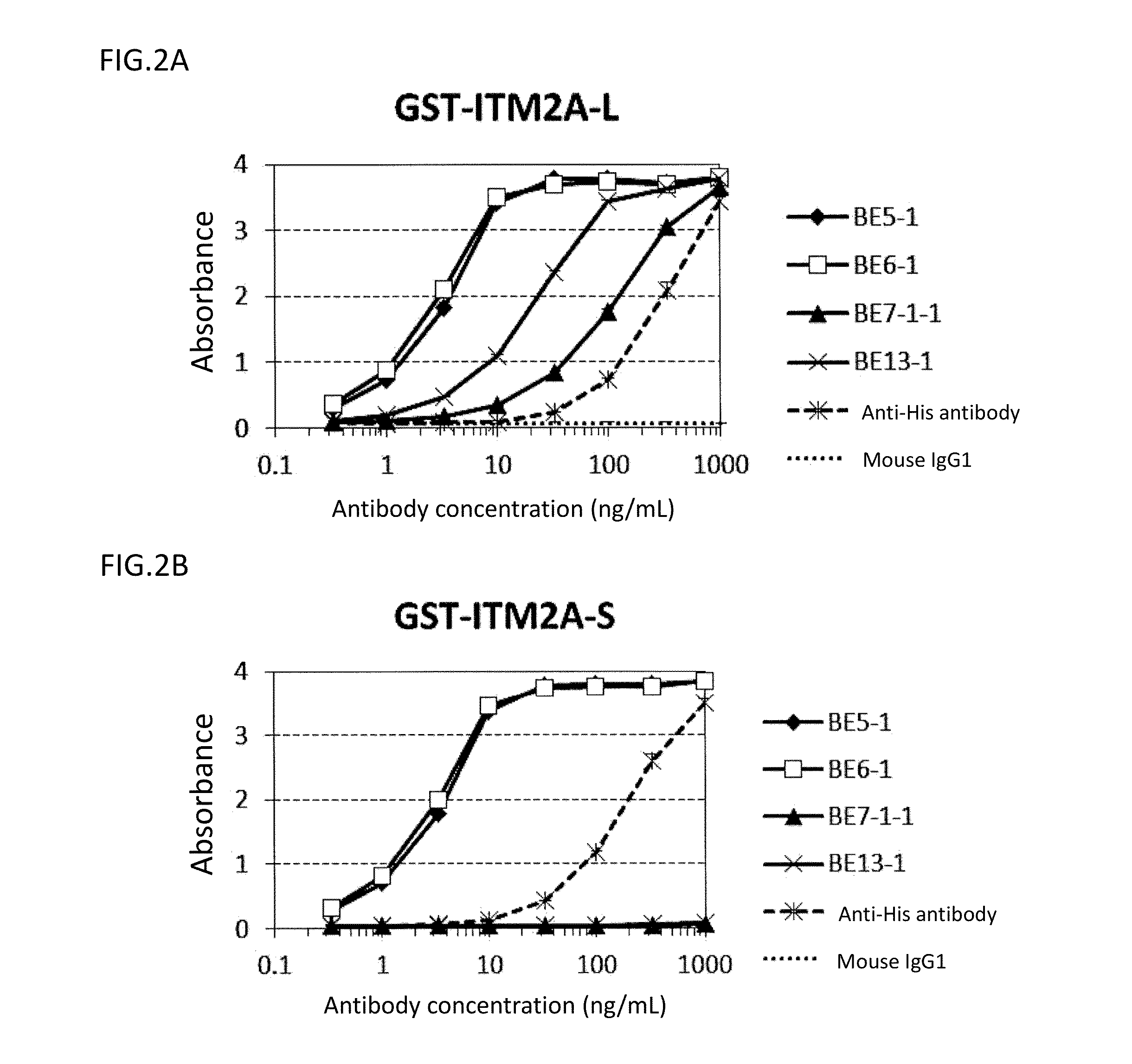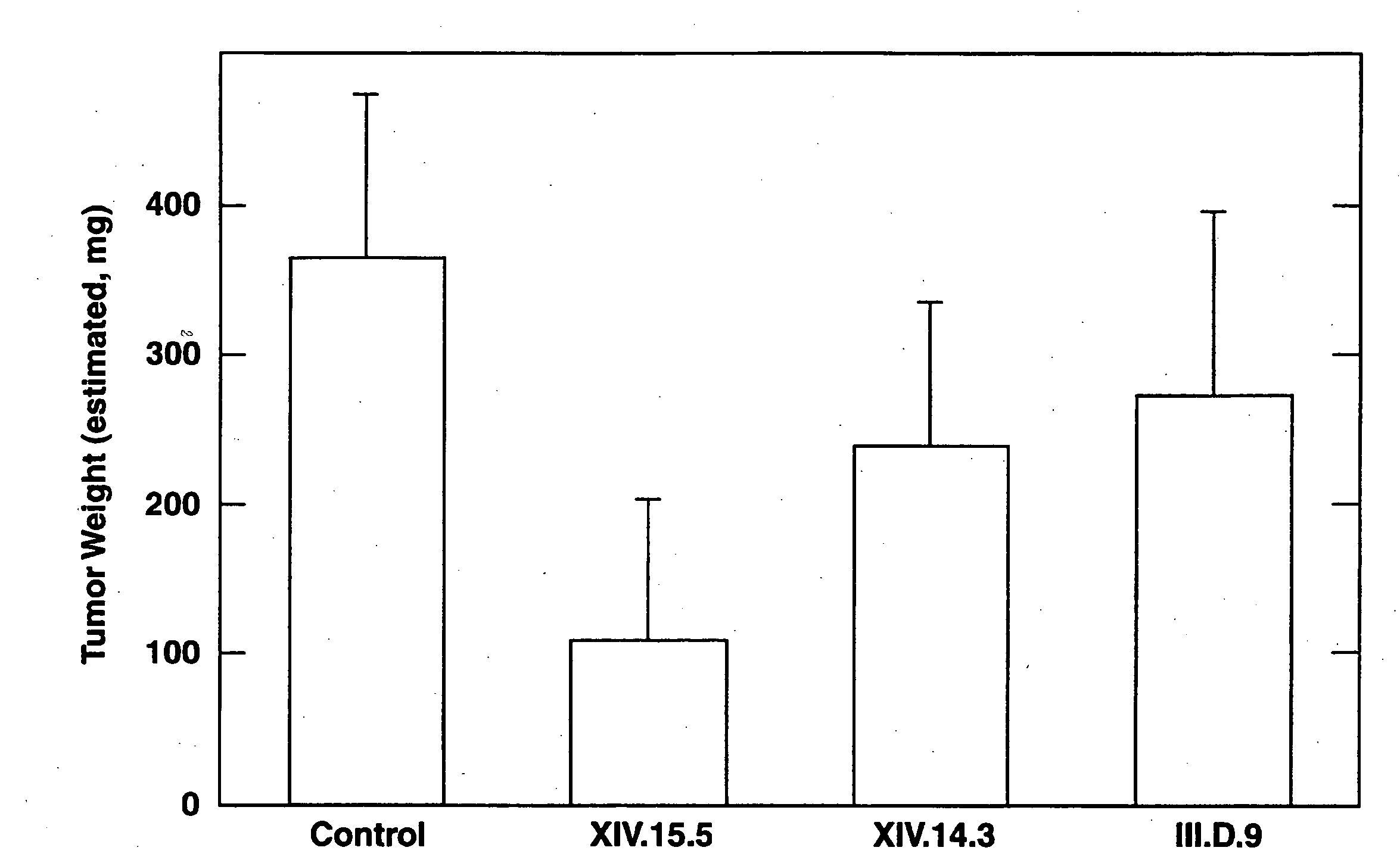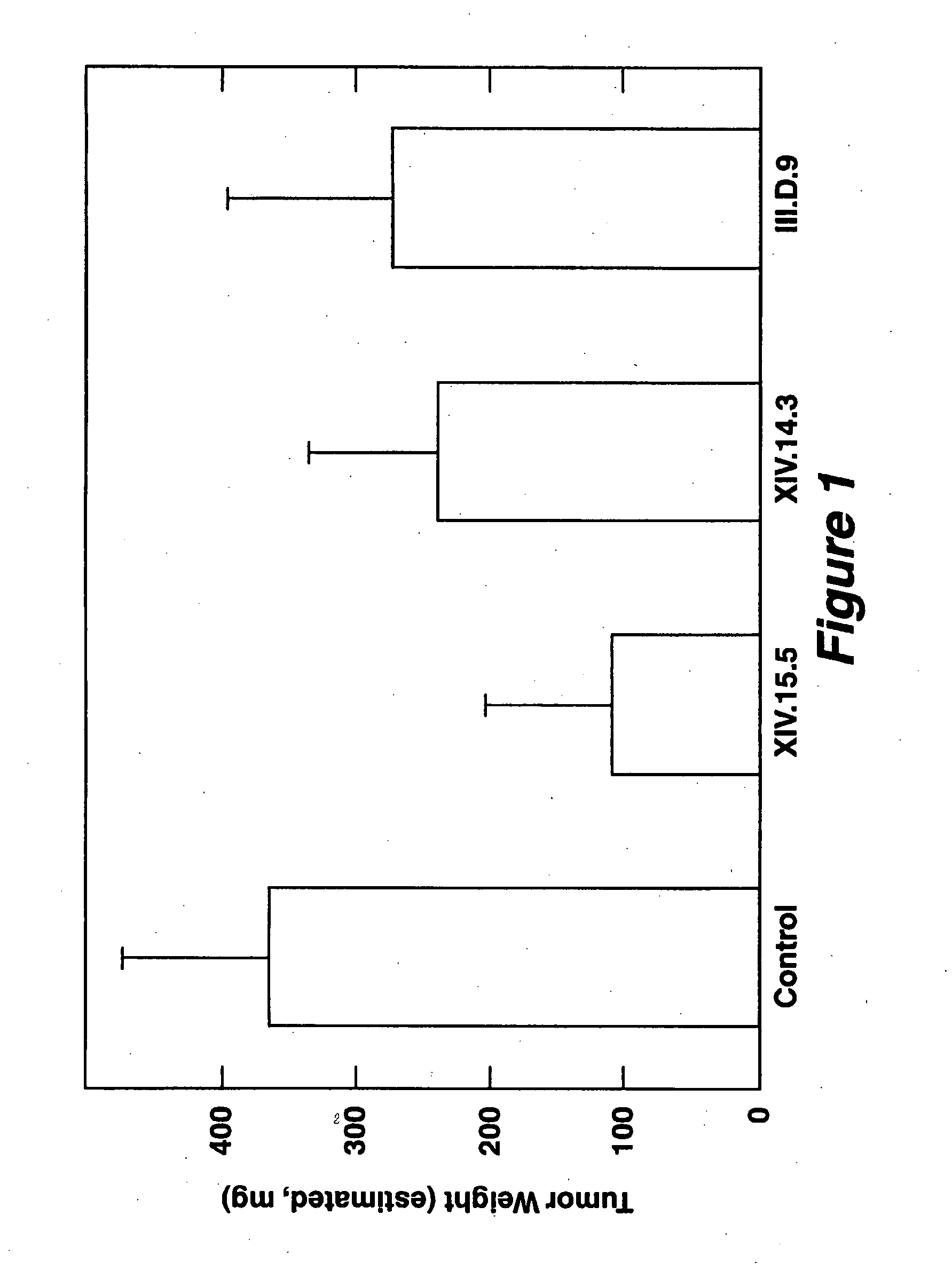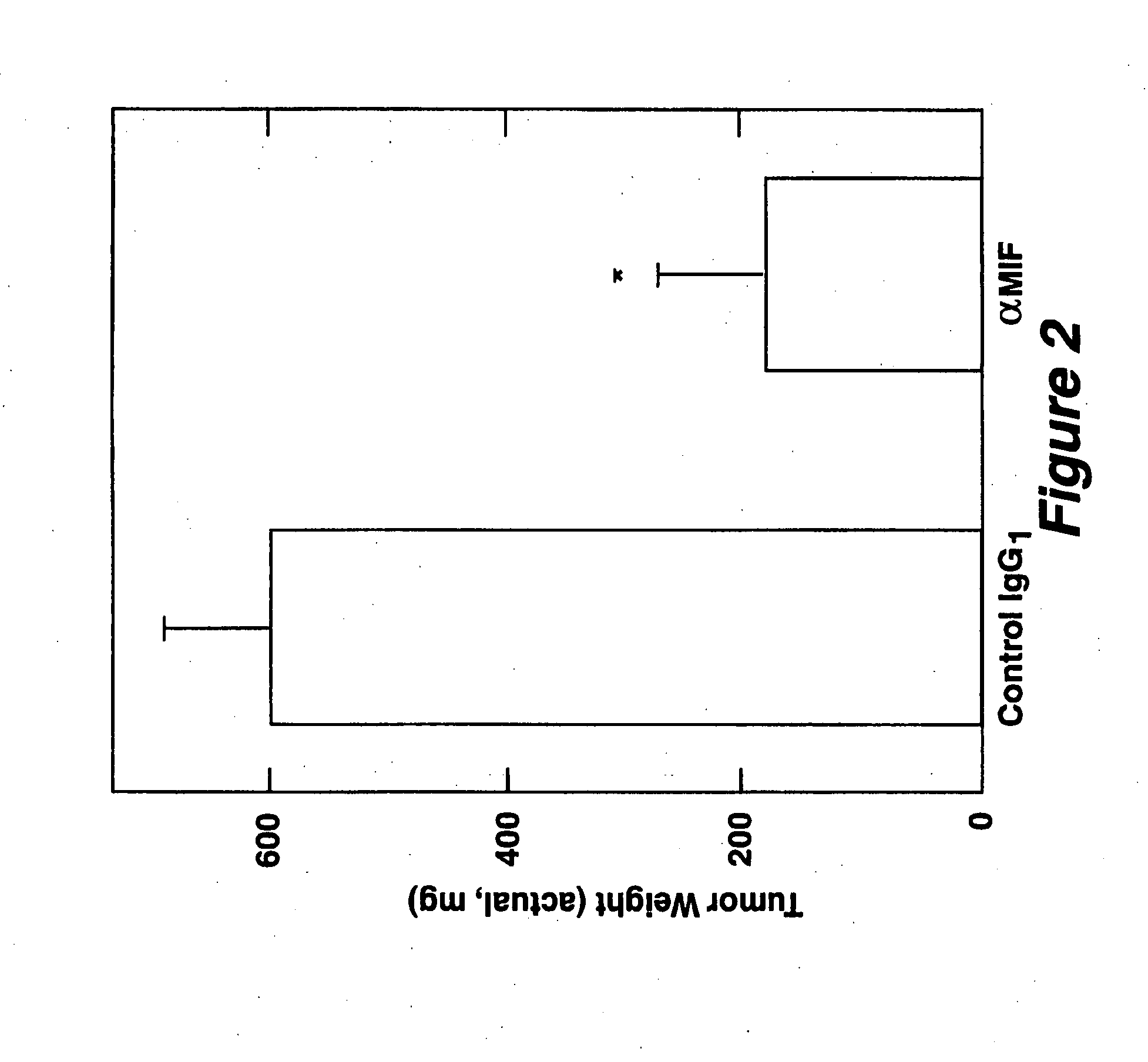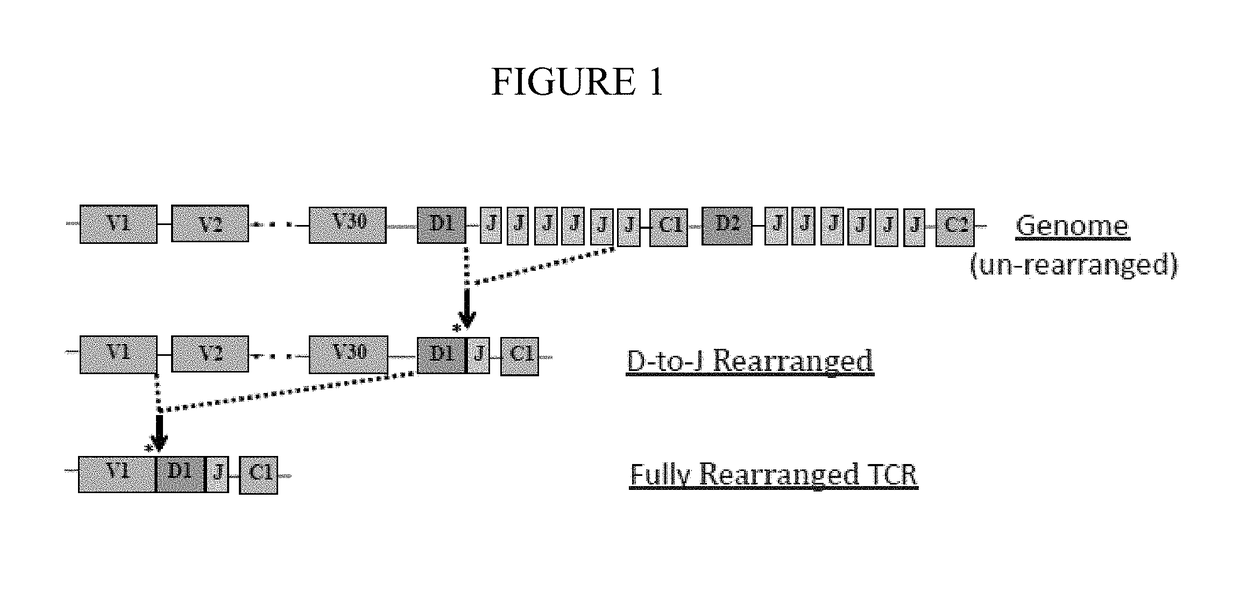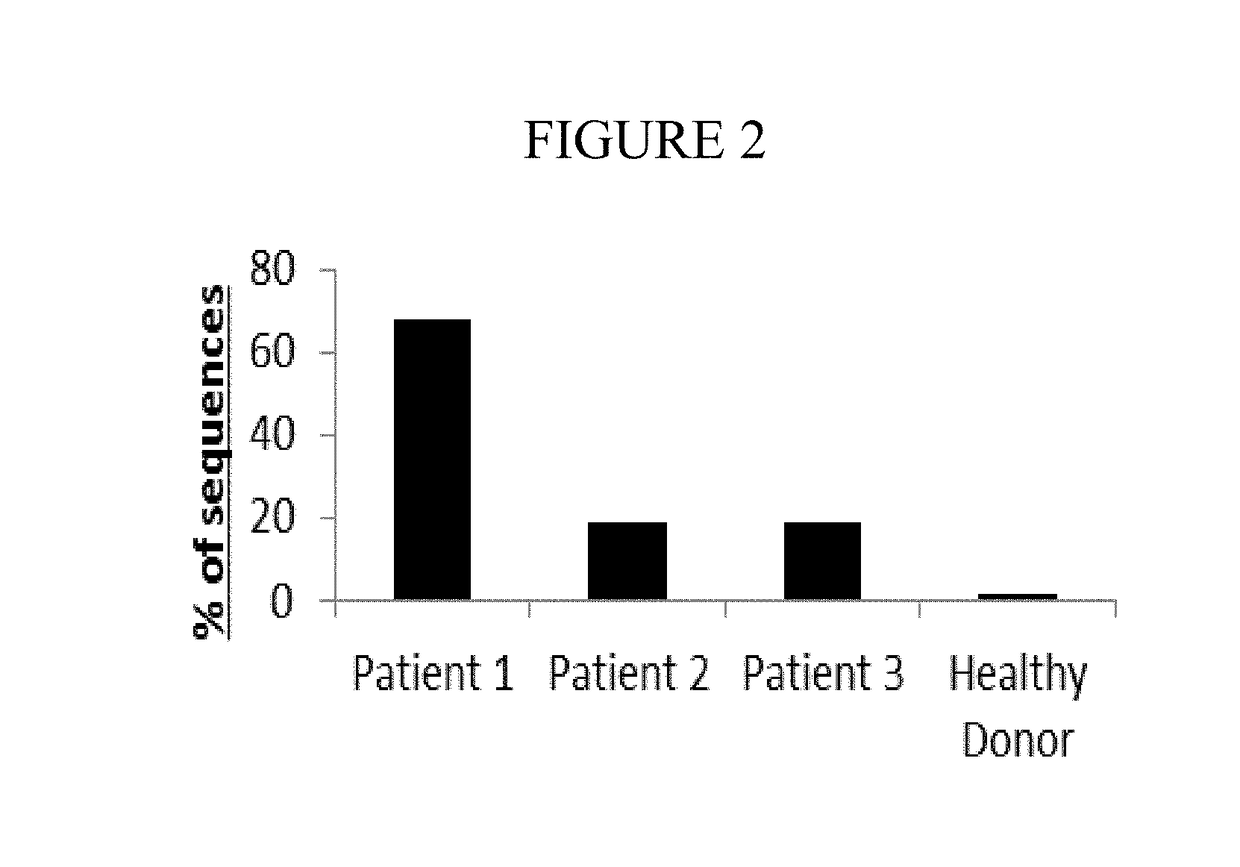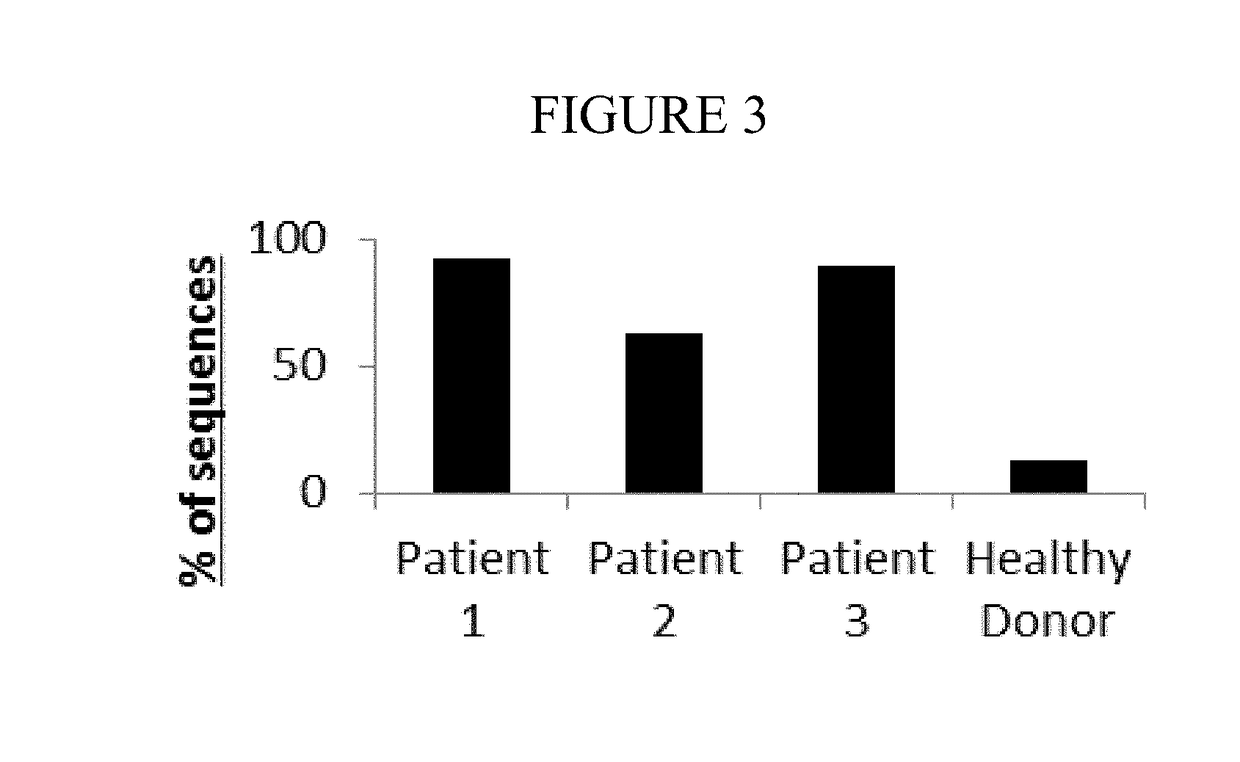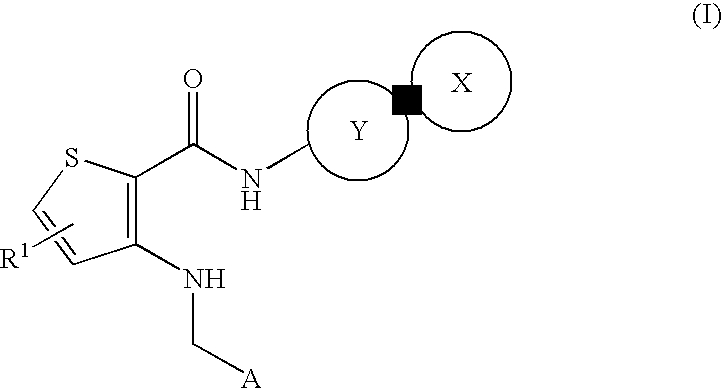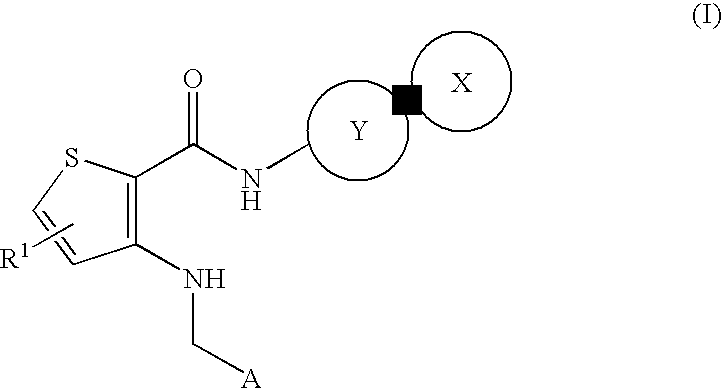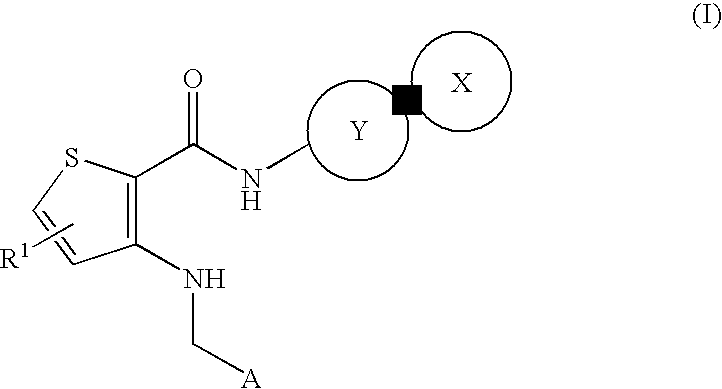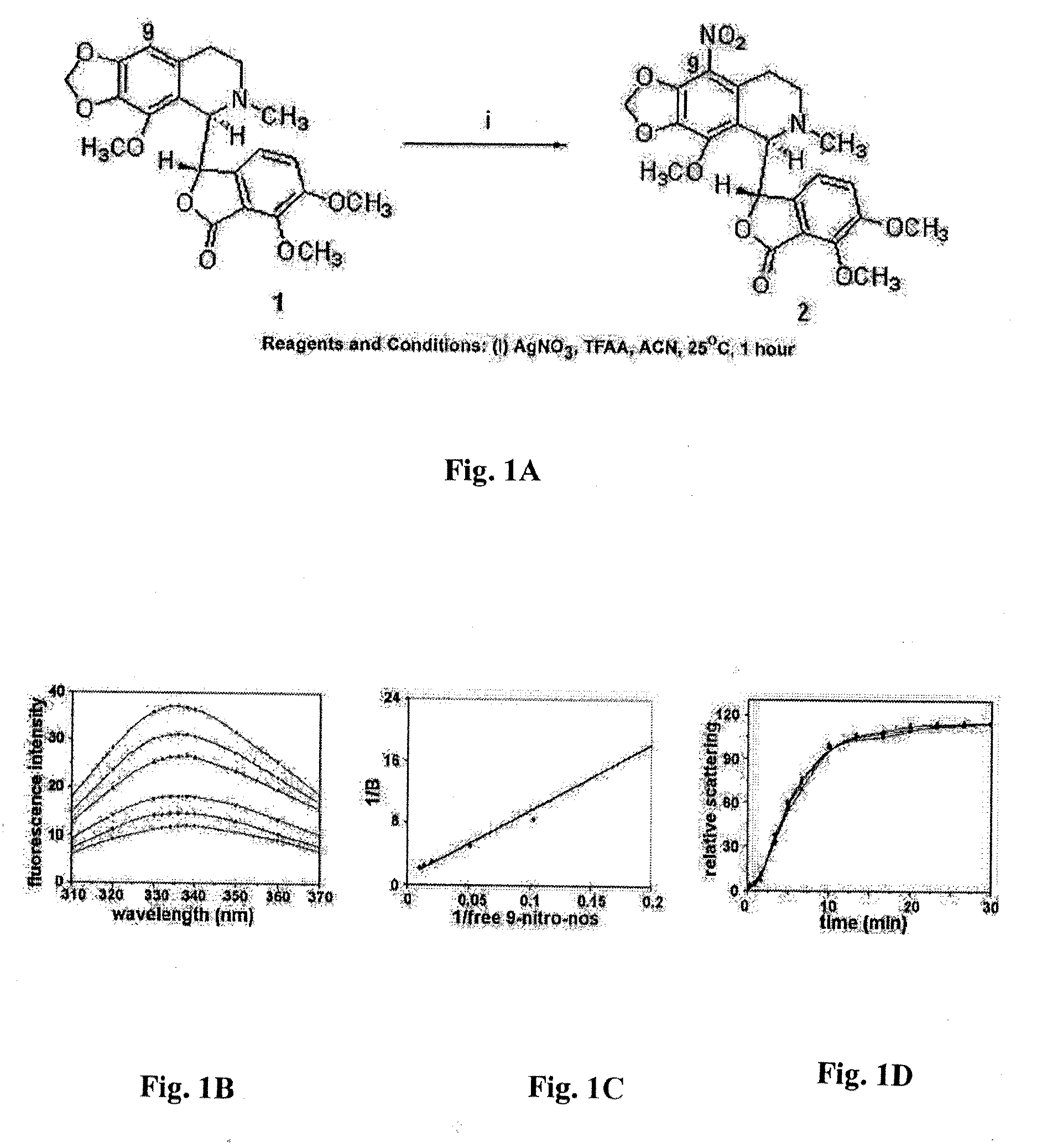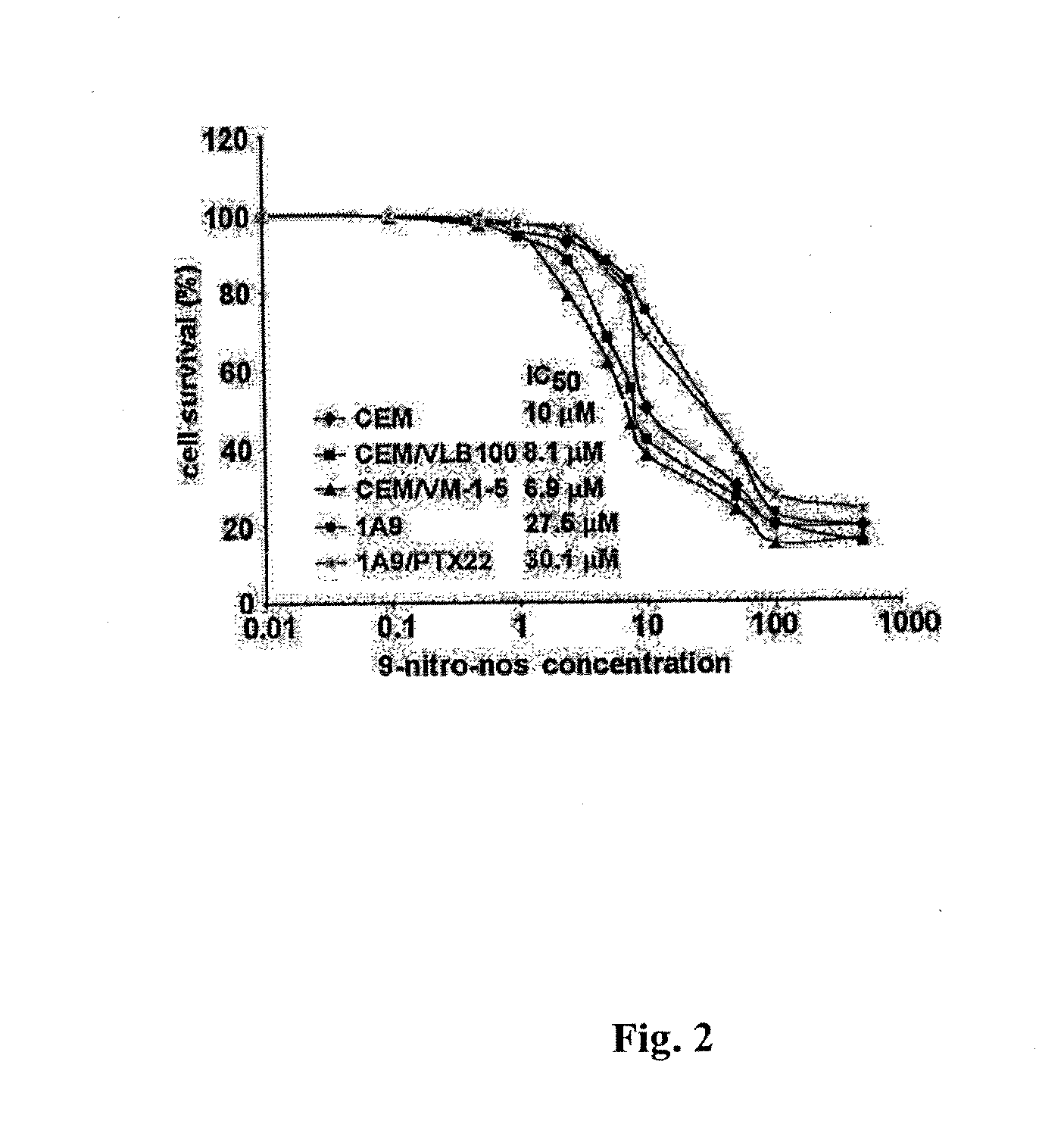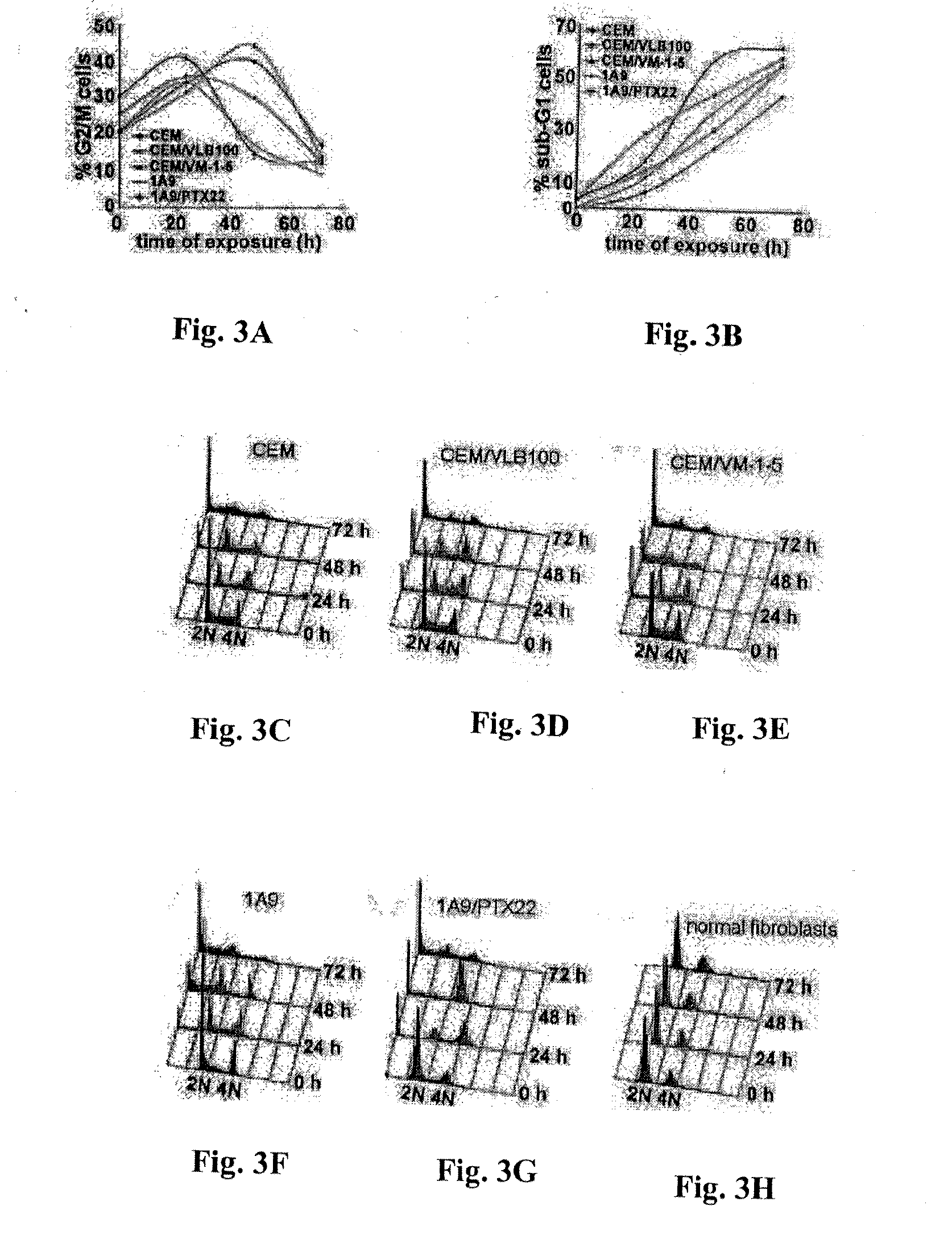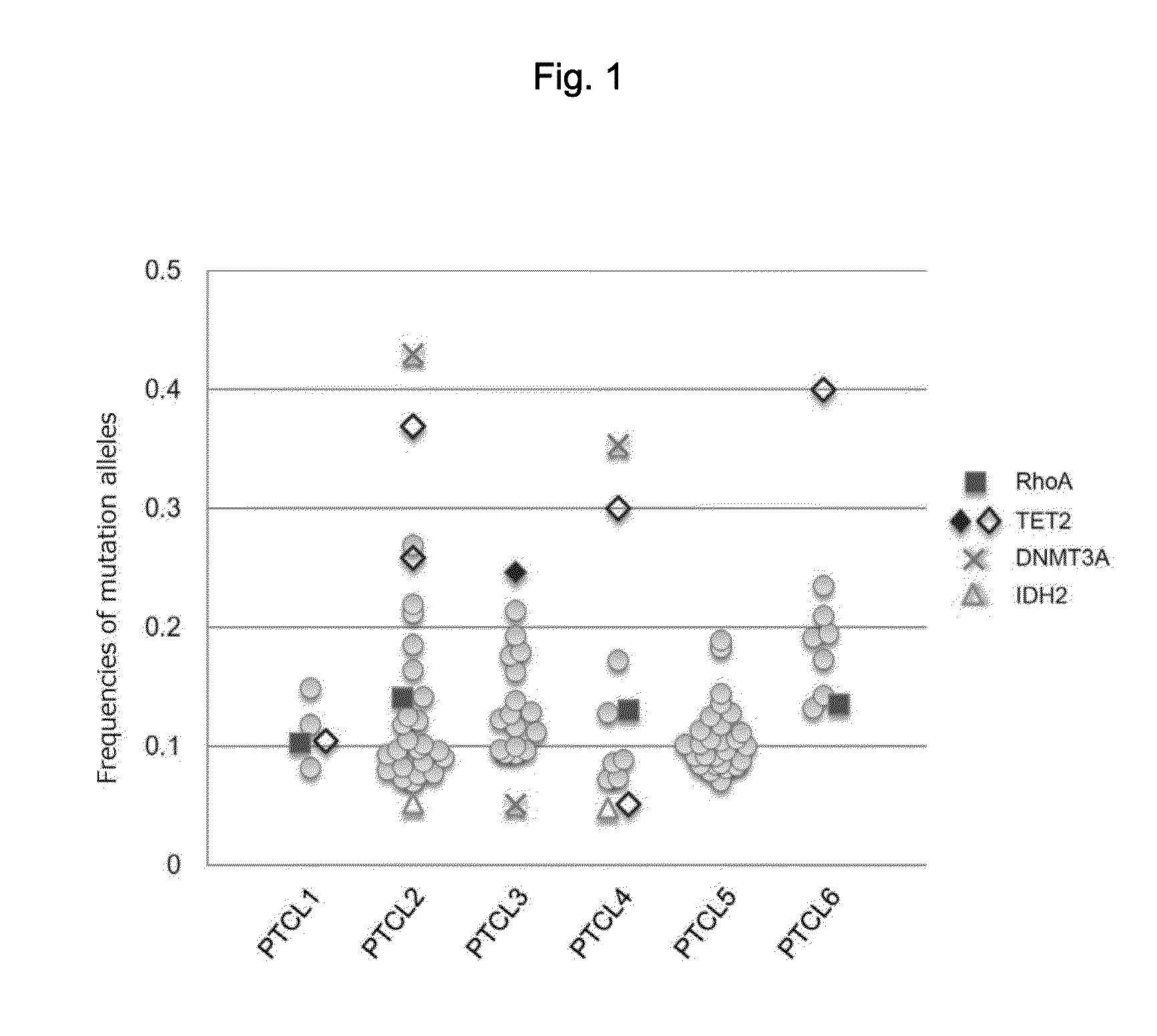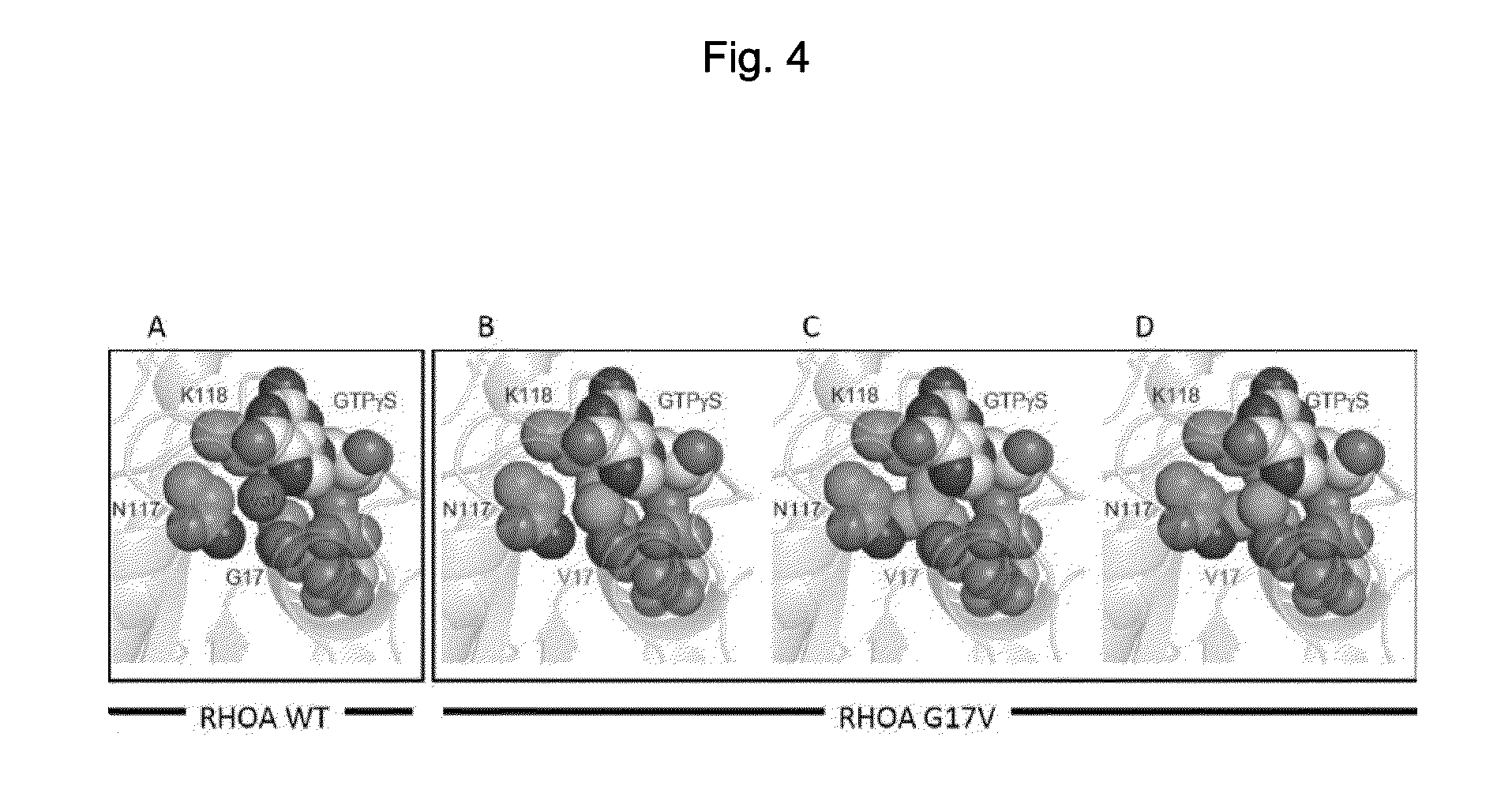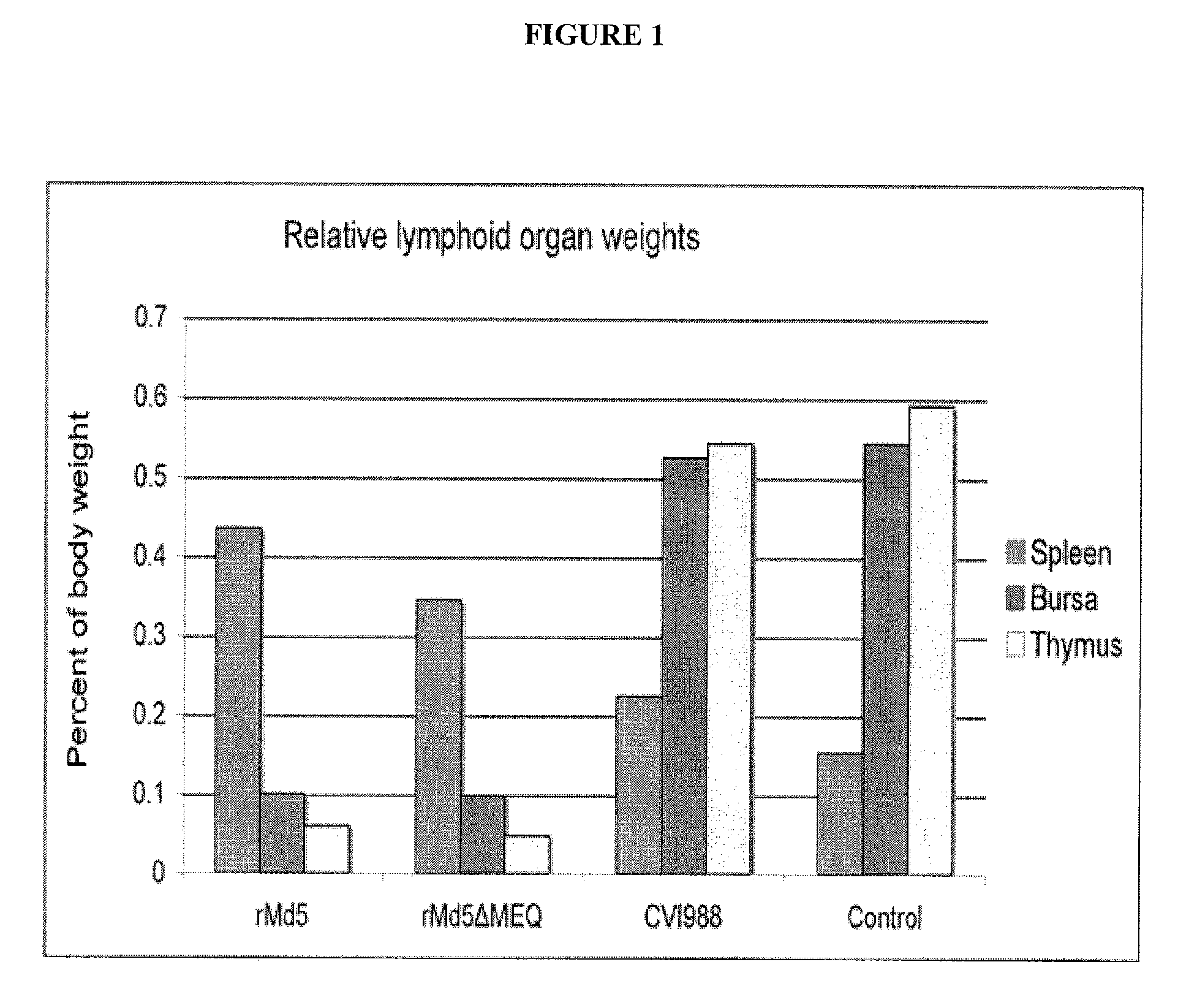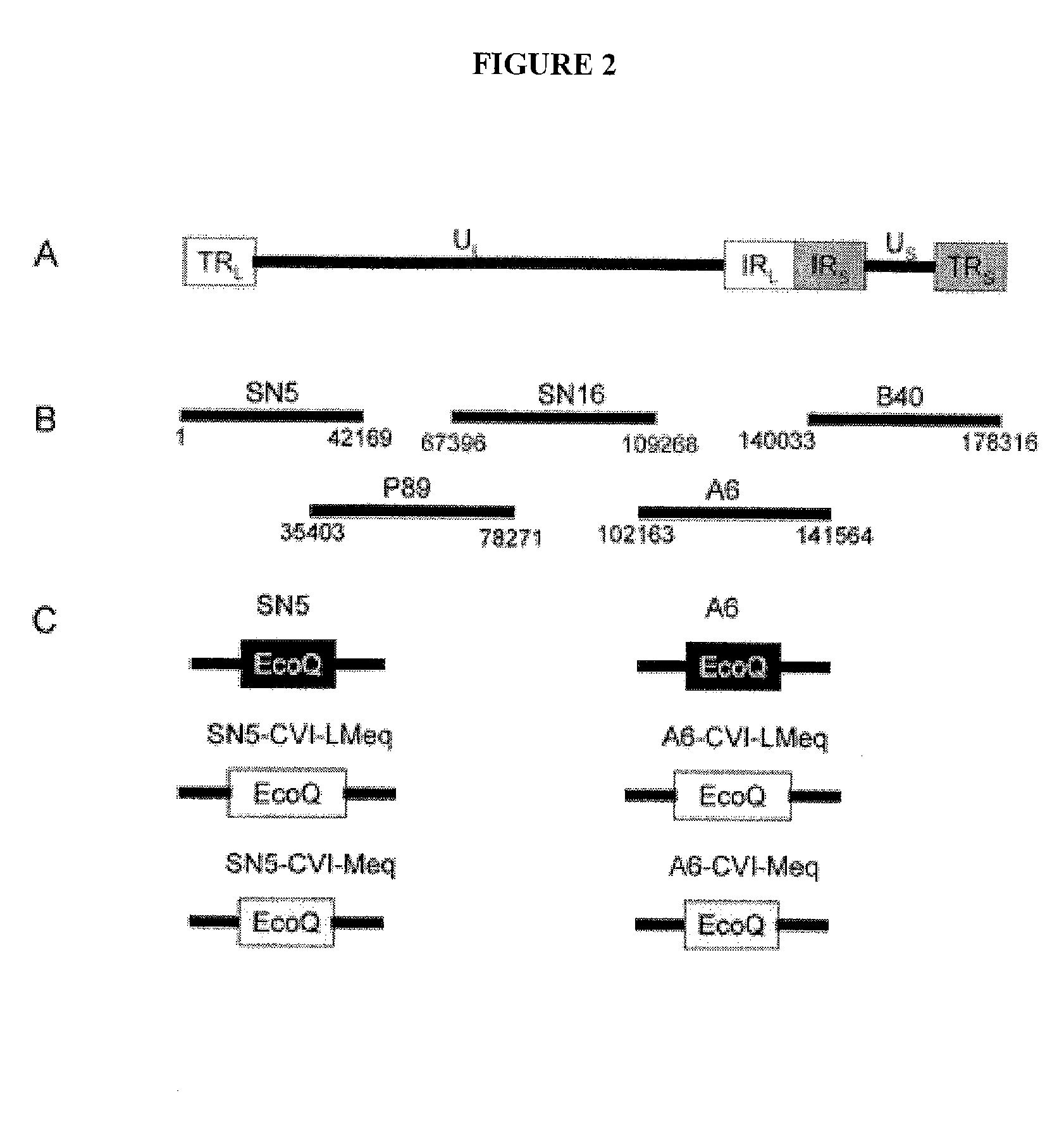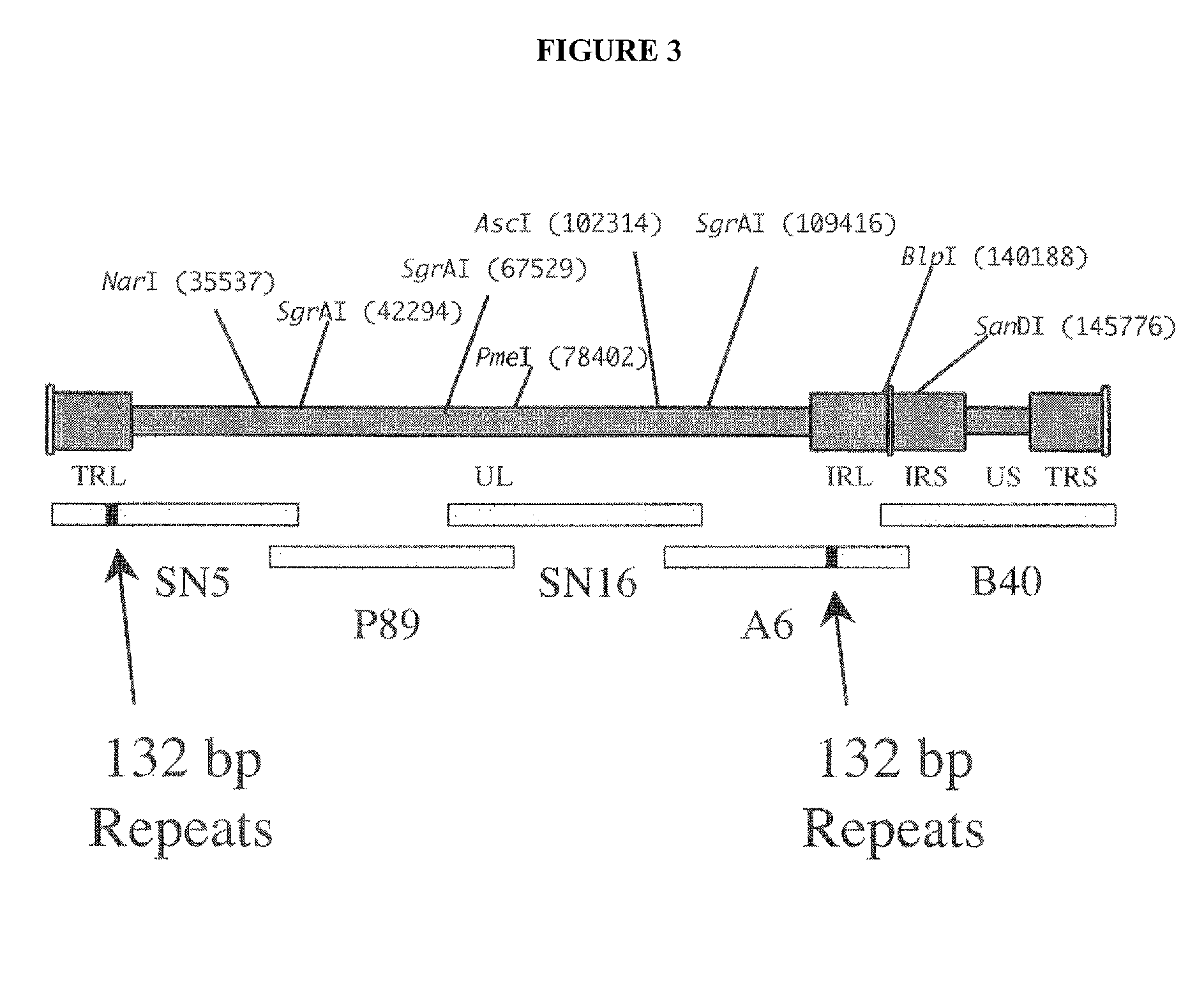Patents
Literature
Hiro is an intelligent assistant for R&D personnel, combined with Patent DNA, to facilitate innovative research.
118 results about "T-cell lymphoma" patented technology
Efficacy Topic
Property
Owner
Technical Advancement
Application Domain
Technology Topic
Technology Field Word
Patent Country/Region
Patent Type
Patent Status
Application Year
Inventor
T-cell lymphomas are lymphomas that affect T cells. There are four major types, and they account for about one in ten cases of non-Hodgkin lymphoma. They can be associated with Epstein Barr virus and Human T-cell leukemia virus-1.
Monitoring transformation of follicular lymphoma to diffuse large b-cell lymphoma by immune repertoire analysis
InactiveUS20140349883A1Raise the possibilityMicrobiological testing/measurementLibrary screeningProgenitorSomatic cell
The invention is directed to a method of prognosing in an individual a transformation from follicular lymphoma to diffuse large B-cell lymphoma (DLBCL) by measuring changes and / or lack of changes in certain groups of related clonotypes, referred to herein as “clans,” in successive clonotype profiles of the individual. A clan may arise from a single lymphocyte progenitor that gives rise to many related lymphocyte progeny, each possessing and / or expressing a slightly different immunoglobulin receptor due to somatic mutation(s), such as base substitutions, inversions, related rearrangements resulting in common V(D)J gene segment usage, or the like. A higher likelihood of transformation from follicular lymphoma to DLBCL is correlated with the persistence of clans in successive clonotype profiles whose clonotype membership fails to undergo diversification over time.
Owner:ADAPTIVE BIOTECH
PYRAZOLE DERIVATIVES AS TNIK, IKKe AND TBK1 INHIBITOR AND PHARMACEUTICAL COMPOSITION COMPRISING SAME
Provided is pyrazole derivatives as a TNIK (Traf2- and NCK-interacting kinase), IKKε (I-kappa-B kinase epsilon) and TBK1 (TANK-binding kinase 1) inhibitor; the pyrazole derivative according to the present invention effectively inhibits TNIK, IKKε and TBK1, and thus is useful not only as an anticancer agent for the treatment of various cancers including colorectal cancer, breast cancer, CNS cancer, colon cancer, non-small cell lung cancer, kidney cancer, prostate cancer, ovarian cancer, uterus cancer, stomach cancer, liver cancer, skin cancer, lung cancer, brain cancer, bladder cancer, esophageal cancer, pancreatic cancer, thyroid cancer, head and neck cancer, squamous cell carcinoma, osteosarcoma, B-cell or T-cell lymphoma, acute or chronic leukemia and multiple myeloma, but as a therapeutic agent for chronic inflammation.
Owner:THE GREEN CROSS CORP
Methods of therapy and diagnosis using targeting of cells that express toll-like receptor proteins
InactiveUS20050281813A1Good effectPeptide/protein ingredientsImmunoglobulins against cell receptors/antigens/surface-determinantsCancer cellT cell
Certain cells, including types of cancer cells such as B-cell lymphomas, T cell lymphomas, Hodgkin's disease and myeloid leukemias, are capable of expressing Toll-like Receptor 9 (TLR9) or Toll-like Receptor 10 (TLR10) mRNA. Immunotargeting using TLR9 or TLR10 polypeptides, nucleic acids encoding for TLR9 or TLR10 polypeptides and anti-TLR9 or anti-TLR10 antibodies provides a method of killing or inhibiting that growth of cancer cells that express the TLR9 or TLR10 protein. Methods of immunotherapy and diagnosis of disorders associated with TLR9 or TLR10 protein-expressing cells, such as B-cell lymphoma, T cell lymphoma, acute myeloid leukemia, Hodgkin's disease, B cell leukemia, chronic lymphocytic leukemia, chronic myelogenous leukemia and myelodysplastic syndromes, are described.
Owner:NUVELO INC
T-cell antigens, and their use in diagnosis and treatment of T-cell mediated conditions
InactiveUS6566082B1Eliminating other undesired immune responsesOptimizationPeptide/protein ingredientsAntipyreticAutoimmune ReactionsAntibody conjugate
The OX-40 antigen is characterized and claimed together with variants and derivatives thereof. Also described are binding agents for the antigen and the use of these in diagnosis and therapy. Examples of such use include a method for the selective depletion of activated CD4+ T-cells in vivo by using immunotoxins comprising an OX-40 antibody conjugated to a toxic molecule (such as Ricin-A chain). The administration of these specific immunotoxins is used therapeutically to deplete autoimmune reactive CD4+ T-cells which have been implicated in diseases including Multiple Sclerosis, Rheumatoid Arthritis, Sarcoidosis, and Autoimmune Uveitis as well as inflammatory bowel disease and graft-versus-host disease. This type of therapy is also beneficial for eradicating CD4+ T-cell lymphomas and alloreactive CD4+ T-cells involved with a transplantation reaction. The use of the human form of the OX-40 antibody will also help in the early diagnosis of all the diseases mentioned above.
Owner:INNOCOMM TECH
Therapeutic uses of factors which inhibit or neutralize MIF activity
InactiveUS6774227B1Organic active ingredientsPeptide/protein ingredientsAntisense RNAMonoclonal antibody
The present invention relates to methods of treating disorders related to cellular overproliferation comprising neutralizing the production or activity of macrophage migration inhibitory factor (MIF). The invention also relates to therapeutic compositions comprising factors which inhibit or neutralize MIF activity, such as, MIF antisense RNA molecules and MIF monoclonal antibodies and derivatives or analogs thereof. The invention further relates to the uses of such compositions and methods for the treatment of malignancies, including, but not limited to, B and T cell lymphomas.
Owner:BAXTER INT INC +1
Aminopyridazinone compounds as protein kinase inhibitors
The present disclosure provides a compound of formula (I) and the use thereof for the therapeutic treatment of human cancers including B-cell lymphoma and autoimmune diseases such as rheumatoid arthritis, systemic lupus erythematosus, and multiple sclerosis.
Owner:JIANGSU HENGRUI MEDICINE CO LTD
Treatment of T-cell lymphoma using 10-propargyl-10-deazaaminopterin
ActiveUS20050267117A1Effective treatmentBiocideAnimal repellantsHuman patient10-Propargyl-10-Deazaaminopterin
T cell lymphoma is treated by administering to a patient suffering from T cell lymphoma a therapeutically effective amount of 10-propargyl-10-deazaaminopterin. Remission is observed in human patients, even with drug resistant T cell lymphoma at weekly dosages levels as low as 30 mg / m2. In general, the 10-propargyl-10-deazaaminopterin is administered in an amount of from 30 to 275 mg / m2 per dose.
Owner:SLOAN KETTERING INST FOR CANCER RES
Methods for treatment of cutaneous T-cell lymphoma
InactiveUS7052685B1Relieve symptomsPeptide/protein ingredientsWhite blood cellCutaneous T-cell lymphoma
A method and composition for treatment of advanced cutaneous T cell lymphoma is provided which involves administration of recombinant interleukin-12.
Owner:UNIV OF PENNSYLVANIA THE TRUSTEES OF THE
Therapeutic uses of factors which inhibit or neutralize MIF activity
InactiveUS20040156848A1Organic active ingredientsPeptide/protein ingredientsAntisense RNAMonoclonal antibody
The present invention relates to methods of treating disorders related to cellular overproliferation comprising neutralizing the production or activity of macrophage migration inhibitory factor (MIF). The invention also relates to therapeutic compositions comprising factors which inhibit or neutralize MIF activity, such as, MIF antisense RNA molecules and MIF monoclonal antibodies and derivatives or analogs thereof. The invention further relates to the uses of such compositions and methods for the treatment of malignancies, including, but not limited to, B and T cell lymphomas.
Owner:CYTOKINE PHARMASCI
Chimeric antigen receptor
InactiveUS20170066827A1Polypeptide with localisation/targeting motifImmunoglobulin superfamilyAntigen receptorBinding domain
The present disclosure relates to a chimeric antigen receptor (CAR) which comprises an antigen-binding domain which selectively binds TCR beta constant region 1 (TRBC1) or TRBC2; cells; such a T cells comprising such a CAR; and the use of such cells for the treatment of a T-cell lymphoma or leukaemia in a subject.
Owner:AUTOLUS LIMIED
Amino acid-conjugated cyanoacrylate polymer particles
InactiveUS20120027821A1Prevent proliferationGood for clinical usePowder deliveryOrganic active ingredientsCyanoacrylateCancer cell
Disclosed are cyanoacrylate polymer particles which comprise an amino acid(s) and have an average particle diameter of less than 1000 nm. The amino acid-containing particles according to the present invention can kill cancer cells by inducing apoptosis-like cell death. The particles have an especially high affinity for cell lines derived from lymphomas such as T-cell lymphoma and B-cell lymphoma. The particles can also exhibit an antiproliferative effect against some kinds of pancreatic cancer-derived cell lines. Therefore, the particles according to the present invention are useful for prevention and / or treatment of cancers.
Owner:PUBLIC UNIV CORP YOKOHAMA CITY UNIV
7-azaindole or 4,7-diazaindole derivatives as ikk epsilon and tbk1 inhibitor and pharmaceutical composition comprising same
Provided are 7-azaindole or 4,7-diazaindole derivatives as an IKKε (I-kappa-B kinase epsilon) and TBK1 (TANK-binding kinase 1) inhibitor. The 7-azaindole or 4,7-diazaindole derivative effectively inhibits IKKε and TBK1, and thus is useful not only as an anticancer agent for the treatment of various cancers including colorectal cancer, breast cancer, CNS cancer, colon cancer, non-small cell lung cancer, kidney cancer, prostate cancer, ovarian cancer, uterus cancer, stomach cancer, liver cancer, skin cancer, lung cancer, brain cancer, bladder cancer, esophageal cancer, pancreatic cancer, thyroid cancer, head and neck cancer, squamous cell carcinoma, osteosarcoma, B-cell or T-cell lymphoma, acute or chronic leukemia and multiple myeloma, but as a therapeutic agent for chronic inflammation.
Owner:THE GREEN CROSS CORP
Molecule mark for diffuse large b-cell lymphoma treating guide and prognosis judgment
InactiveCN101470112AShort lifespanPoor clinical prognosisBiological testingB cellLarge-cell lymphoma
The invention relates to a molecular mark (p-Akt and / or YB-1) for selecting treatment scheme and / or prognostic evaluation of diffuse large b-cell lymphomas and an application therefore, and relates to a method for selecting treatment scheme and / or prognostic evaluation of diffuse large b-cell lymphomas. The molecular mark p-Akt and / or YB-1 can simply and correctly judge the prognosis of diffuse large b-cell lymphomas, to select objective treatment scheme for patients, thereby improving the prognosis effect of treatment scheme and saving medical cost.
Owner:RUIJIN HOSPITAL AFFILIATED TO SHANGHAI JIAO TONG UNIV SCHOOL OF MEDICINE +1
Combined medicine with synergistic action for treating T cell lymphomata and application thereof
InactiveCN101732329AInhibition of growth and proliferationInhibitory activityDipeptide ingredientsBoron compound active ingredientsDiseaseMedicine
The invention relates to a combined medicine with a synergistic action for treating T cell lymphomata. The combined medicine comprises bortezomib and SAHA, wherein the proportion of the bortezomib to the SAHA is 5-10nM:1-2.0 mu M. The invention also provides an application of the combined medicine in preparing a medicine for treating lymphomata diseases, wherein the lymphomata is T cell lymphomata. By using the combined medicine, the synergistic action of the two medicines is exerted, and the growth and the multiplication of T lymphomata cells can be synergically suppressed. By combining the two medicines, the curative effect is enhanced, and the cost can also be greatly lowered.
Owner:RUIJIN HOSPITAL AFFILIATED TO SHANGHAI JIAO TONG UNIV SCHOOL OF MEDICINE
Method for establishing extranodal nasal type NK/T-celllymphoma animal model
InactiveCN1879892AAccurately establishedSimple and fast operationIn-vivo testing preparationsNude mouseT lymphocyte
The invention relates to a method for building the animal model of external nose shape NK / T lymphocyte cancer, which comprises: a, seeding, b, generating, c, checking, while it optimizes the parameters of each step, to overcome the defects of prestn technique. The invention has short generating time, with high on-time seeding success ratio. Compared with present technique, it can build the animal model of external nose shape NK / T lymphocyte cancer. And the model can replay the key biological character of external nose shape NK / T lymphocyte cancer, with stable growing period and wider application.
Owner:WEST CHINA HOSPITAL SICHUAN UNIV
Reducing irf4, dusp22, or flj43663 polypeptide expression
InactiveUS20100324119A1Reduce spreadReduce expressionOrganic active ingredientsMicrobiological testing/measurementT cellCell biology
This document relates to the activity of interferon regulatory factor 4 (IRF4) in T-cell lymphomas. For example, methods and materials involved in reducing the expression of an IRF4 polypeptide in T-cell lymphoma cells and identifying agents having the ability to reduce expression of an IRF4 polypeptide in T-cell lymphoma cells are provided. This document also relates to reducing DUSP22 or FLJ43663 polypeptide activity in T-cell lymphomas. For example, methods and materials involved in reducing the expression of DUSP22 polypeptides and / or FLJ43663 polypeptides in T-cell lymphoma cells and identifying agents having the ability to reduce expression of DUSP22 polypeptides and / or FLJ43663 polypeptides in T-cell lymphoma cells are provided.
Owner:MAYO FOUND FOR MEDICAL EDUCATION & RES
Compounds as tnik, ikkepsilon and tbk1 inhibitors and pharmaceutical composition comprising same
Provided is a compound of formula (I) as a TNIK (Traf2- and NCK-interacting kinase), IKKε (I-kappa-B kinase epsilon) and TBK1 (TANK-binding kinase 1) inhibitor; the compound according to the present invention effectively inhibits TNIK, IKKε and TBK1, and thus is useful not only as an anticancer agent for the treatment of various cancers including colorectal cancer, breast cancer, CNS cancer, colon cancer, non-small cell lung cancer, kidney cancer, prostate cancer, ovarian cancer, uterus cancer, stomach cancer, liver cancer, skin cancer, lung cancer, brain cancer, bladder cancer, esophageal cancer, pancreatic cancer, thyroid cancer, head and neck cancer, squamous cell carcinoma, osteosarcoma, B-cell or T-cell lymphoma, acute or chronic leukemia and multiple myeloma, but as a therapeutic agent for chronic inflammation.
Owner:THE GREEN CROSS CORP
Chimeric antigen receptor (CAR) with antigen binding domains to the t cell receptor beta constant region
InactiveUS20170334998A1Polypeptide with localisation/targeting motifImmunoglobulin superfamilyAntigen receptorT-Cell Receptor Beta
The present disclosure relates to a chimeric antigen receptor (CAR) which comprises an antigen-binding domain which selectively binds TCR beta constant region 1 (TRBC1) or TRBC2; cells; such a T cells comprising such a CAR; and the use of such cells for the treatment of a T-cell lymphoma or leukaemia in a subject.
Owner:AUTOLUS LIMIED
Diagnosis and treatment of cancer using Anti-itm2a antibody
InactiveUS20140193420A1Immunoglobulins against cell receptors/antigens/surface-determinantsDisease diagnosisAnticarcinogenAntiendomysial antibodies
Disclosed is a monoclonal antibody binding to an ITM2A protein. This antibody is useful in the diagnosis, prevention, and treatment of cancer such as Ewing's sarcoma, T cell leukemia, T cell lymphoma, acute myeloid leukemia, B cell tumor, and multiple myeloma. The present invention also provides a pharmaceutical composition, a cell growth inhibitor, and an anticancer agent containing the antibody as an active ingredient, and a method for treating cancer, a method for predicting the efficacy of cancer treatment, and a method for determining the presence of cancer in a test subject using the antibody.
Owner:THE UNIV OF TOKYO +1
Therapeutic uses of factors which inhibit or neutralize MIF activity
InactiveUS20080317759A1Organic active ingredientsPeptide/protein ingredientsAntisense RNAMonoclonal antibody
The present invention relates to methods of treating disorders related to cellular overproliferation comprising neutralizing the production or activity of macrophage migration inhibitory factor (MIF). The invention also relates to therapeutic compositions comprising factors which inhibit or neutralize MIF activity, such as, MIF antisense RNA molecules and MIF monoclonal antibodies and derivatives or analogs thereof. The invention further relates to the uses of such compositions and methods for the treatment of malignancies, including, but not limited to, B and T cell lymphomas.
Owner:BAXTER INT INC +1
Use of anti-cs1 antibodies for treatment of rare lymphomas
InactiveCN102216332AImmunoglobulins against cell receptors/antigens/surface-determinantsAntibody ingredientsT cellAntibody
Uses of anti-CS1 antibodies, alone or in combination with other agents, for the treatment of rare lymphomas, such as NK lymphomas, NK / T-cell lymphomas, and angioimmunoblastic lymphomas.
Owner:ABBOTT BIOTHERAPEUTICS CORP +1
Diagnostic methods for identifying t-cell lymphoma and leukemia by high-throughput tcr-beta sequencing
A method for diagnosing a lymphoid proliferative disorder (such as lymphoma, T-cell lymphoma or leukemia) in a subject or determining the risk of a subject for a lymphoid proliferative disorder recurrence after transient remission, which includes high throughput T-Cell Receptor β (TCRβ) sequencing tests to identify dominant oncogenic clones in the subject suffering from the lymphoid proliferative disorder. Oligonucleotides primer compositions and kits associated with the above-described methods are also provided herein. Said subject includes living organisms, such as mammals (e.g., dogs, cats, pigs, cows, horses, goats, rabbits, humans), non-mammalian vertebrates, such as birds (e.g., chicken, ducks), fish (e.g., sharks), or frogs, and transgenic species thereof.
Owner:KARKINOS PRECISION ONCOLOGY LLC
Antigen epitope peptide and application thereof
InactiveCN106397574AEfficient killingImproving immunogenicityCell receptors/surface-antigens/surface-determinantsVertebrate antigen ingredientsAntigen epitopeMajor histocompatibility
The invention discloses an antigen epitope peptide. Amino acid sequences of the antigen epitope peptide contain an amino acid sequence shown as SEQ ID NO.2 or SEQ ID NO.3, or an amino acid sequence formed by adding one or more amino acids to the amino acid sequence shown as SEQ ID NO.2 or SEQ ID NO.3, deleting one or more amino acids from the amino acid sequence shown as SEQ ID NO.2 or SEQ ID NO.3 or substituting one or more amino acids. The antigen epitope peptide can be used for producing antigen-presenting cells, major histocompatibility antigen complexes or cytotoxic T lymphocyte inducers, and can be further used for preparing drugs for treating cancer such as NK / T-cell lymphoma.
Owner:XIN HUA HOSPITAL AFFILIATED TO SHANGHAI JIAO TONG UNIV SCHOOL OF MEDICINE
(Spirocyclylamido)aminothiophene compounds
Compounds represented by Formula (I): or a pharmaceutically acceptable salt or N-oxide thereof, wherein A, R1, X and Y are defined herein, are useful in the treatment of tumors and cancers such as mastocytosis / mast cell leukemia, gastrointestinal stromal tumors (GIST), germ cell tumors, small cell lung carcinoma (SCLC), sinonasal natural killer / T-cell lymphoma, testicular cancer (seminoma), thyroid carcinoma, malignant melanoma, ovarian carcinoma, adenoid cystic carcinoma, acute myelogenous leukemia (AML), breast carcinoma, pediatric T-cell acute lymphoblastic leukemia, neuroblastoma, mast cell leukemia, angiosarcoma, anaplastic large cell lymphoma, endometrial carcinoma, and prostate carcinoma.
Owner:OSI PHARMA INC
Gene mutation site group of NK/T cell lymphoma, targeted sequencing kit and application
PendingCN111850116AAccurate prognosisImproved prognosisMicrobiological testing/measurementDNA/RNA fragmentationGenes mutationDisease
The invention belongs to the technical field of biology, and particularly relates to a gene mutation site group of NK / T cell lymphoma and a kit and application thereof. The invention provides a gene mutation site group of NK / T cell lymphoma, which can be used for evaluating molecular typing of NK / T cell lymphoma, predicting prognosis of a patient and guiding medication of the patient. According tothe kit, an IlluminaMiseq sequencing platform and performance sequencing are adopted, a series of mutant genes related to NK / TCL diseases can be efficiently and accurately detected, the detection period is short, the detection cost is low, the application range is wide, and the accuracy is high.
Owner:RUIJIN HOSPITAL AFFILIATED TO SHANGHAI JIAO TONG UNIV SCHOOL OF MEDICINE +1
Detection kit for NK/T cell lymphoma related genes and library building method
PendingCN112410424AShort build cycleIncrease coverageMicrobiological testing/measurementOncologyGene Mutant
The invention relates to the field of gene mutation detection, in particular to a detection kit for NK / T cell lymphoma related genes and a library building method. The detection kit for the NK / T celllymphoma related genes comprises a capture probes for 65 target genes. The kit adopts two rounds of PCR reactions for library building, and the library building has a short period, a high coverage rate, a high comparison rate, a good uniformity, simple operations and the like.
Owner:RUIJIN HOSPITAL AFFILIATED TO SHANGHAI JIAO TONG UNIV SCHOOL OF MEDICINE +1
Noscapine analogs and their use in treating cancers, including drug-resistant cancers
InactiveUS20100227878A1Inhibit cell proliferationBiocideOrganic chemistryStructure functionMitotic arrest
Compounds, pharmaceutical compositions including the compounds, and methods of preparation and use thereof are disclosed. The compounds are noscapine analogs. The compounds and compositions can be used to treat and / or prevent a wide variety of cancers, including drug resistant cancers. While the antitussive plant alkaloid, noscapine, binds tubulin, displays anticancer activity, and has a safe pharmacological profile in humans, structure-function analyses pointed to a proton at position 9 of the isoquinoline ring that can be modified without compromising tubulin binding activity. Noscapine analogs with various functional moieties at position 9 on the isoquinoline ring kill human cancer cells resistant to other anti-microtubule agents, such as vincas and taxanes. Representative analogs include the 9-nitro, 9-bromo-, 9-iodo-, and 9-fluoro-noscapines, which bind tubulin and induce apoptosis selectively in tumor cells (ovarian and T-cell lymphoma) resistant to paclitaxel, vinblastine and teniposide. Surprisingly, treatment with one of the analogs, 9-nitro-nos, at doses as high as 100 μM, did not affect the cell cycle profile of normal human fibroblasts. This selectivity for cancer cells represents a unique edge over the other available antimitotics. The compounds can perturb the progression of cell cycle by mitotic arrest, followed by apoptotic cell death associated with increased caspase-3 activation and appearance of TUNEL-positive cells. Thus, the compounds are novel therapeutic agents for a variety of cancers, including ovarian and T-cell lymphoma cancers, even those that have become drug-resistant to currently available chemotherapeutic drugs.
Owner:EMORY UNIVERSITY
Immunodeficiency nude mouse model constructed by lymphoma cell line
PendingCN108835051AGuaranteed tumor formation rateHigh tumor formation rateAnimal husbandryAbnormal tissue growthMatrigel
The invention belongs to the technical field of animal tumor model construction and specifically relates to an immunodeficiency nude mouse model constructed by a lymphoma cell line and capable of being stably passed and a constructing method thereof. The immunodeficiency nude mouse model constructed by the lymphoma cell line and capable of being stably passed is constructed by using an NK cell lymphoma cell line, a T cell lymphoma cell line or a B cell lymphoma cell line; and the immunodeficiency nude mouse model constructed by the lymphoma cell line and capable of being stably passed comprises processes such as corresponding pre-treatment of an object of inoculation and the lymphoma cell line, preparation of a tumor suspension and injection of a nude mouse and tumor cell passage. The constructing method for constructing a lymphoma animal model by using the NK cell lymphoma cell line, the T cell lymphoma cell line or the B cell lymphoma cell line, provided by the invention, has the advantages that a lymphoma cell can be fixed under the skin by using a fixing effect of matrigel so as to guarantee the tumor formation rate of the nude mouse; technical advantages of fast tumor formation and high tumor formation rate are shown; and on the other hand, in the passage process, the lymphoma animal model for passage can be resuscitated at any time and can be directly constructed under the coordination of freezing operation of relevant tumor tissue culture solution.
Owner:THE FIRST AFFILIATED HOSPITAL OF ZHENGZHOU UNIV
Method for detecting t-cell lymphoma
ActiveUS20160076107A1Reliable and convenient detectionConveniently and reliably and diagnoseSugar derivativesMicrobiological testing/measurementBiologyBase Number
A method for detecting T-cell lymphoma characterized in that gene mutations of at least one base selected from a group comprising base numbers 50, 331, 334, and 482 or gene mutations of base numbers 49 to 51 in the base sequence of an RHOA gene collected from a subject are analyzed, and the analysis results and T-cell lymphoma are associated with each other.
Owner:UNIV OF TSUKUBA
Marek's Disease Virus Vaccine Compositions and Methods of Using Thereof
InactiveUS20100233206A1Reduce pathogenicityAltering pathogenicityNervous disorderViral antigen ingredientsPhosphorylationMarek's disease
Marek's disease virus (MDV), the etiologic agent of Marek's disease, is a potent oncogenic herpesvirus. MDV is highly contagious and elicits a rapid onset of malignant T-cell lymphomas in chickens within weeks after infection. MDV codes for an oncoprotein, Meq, that shares resemblance with the Jun / Fos family of b-ZIP transcription factors. Earlier studies showed that Meq is responsible for development for T-cell lymphomas in chicken. In order to identify specific regions within the Meq gene, a series of recombinant MDV were generated in which a mutated gene was introduced in place of parental Meq gene. Various mutations were introduced at the phosphorylation sites, basic region, leucine zipper region and transactivation regions of the Meq gene. Several of these mutations have been shown to have an attenuated phenotype in chickens. In one embodiment, the present invention contemplates exploiting these mutations to develop MDV vaccines that are able to protect against challenge with highly virulent MDV strains.
Owner:TEXAS A&M UNIVERSITY
Features
- R&D
- Intellectual Property
- Life Sciences
- Materials
- Tech Scout
Why Patsnap Eureka
- Unparalleled Data Quality
- Higher Quality Content
- 60% Fewer Hallucinations
Social media
Patsnap Eureka Blog
Learn More Browse by: Latest US Patents, China's latest patents, Technical Efficacy Thesaurus, Application Domain, Technology Topic, Popular Technical Reports.
© 2025 PatSnap. All rights reserved.Legal|Privacy policy|Modern Slavery Act Transparency Statement|Sitemap|About US| Contact US: help@patsnap.com
